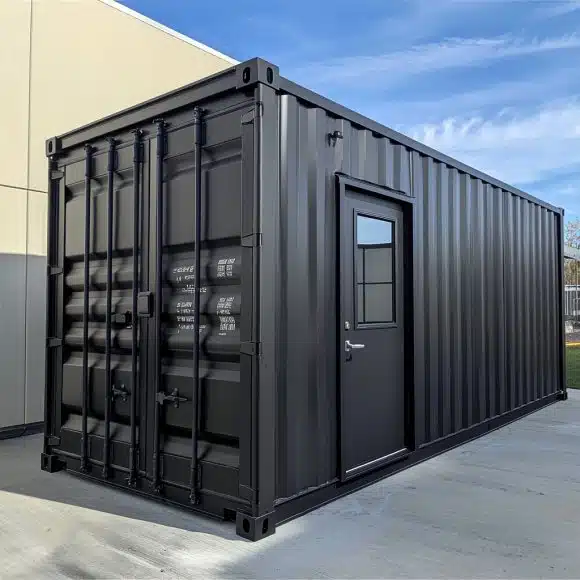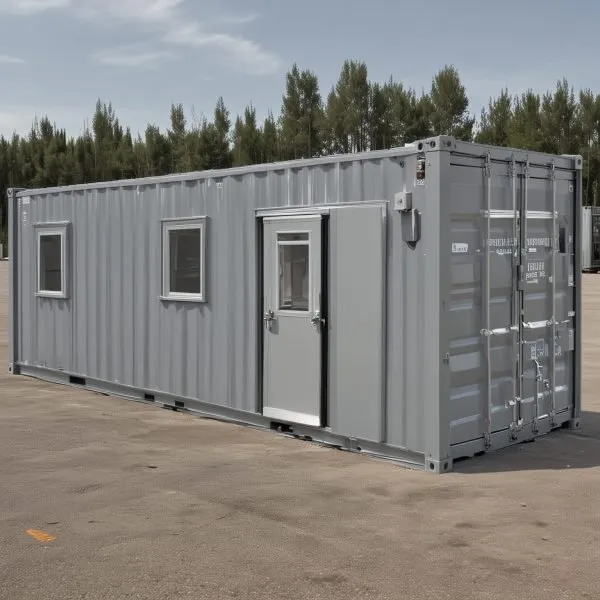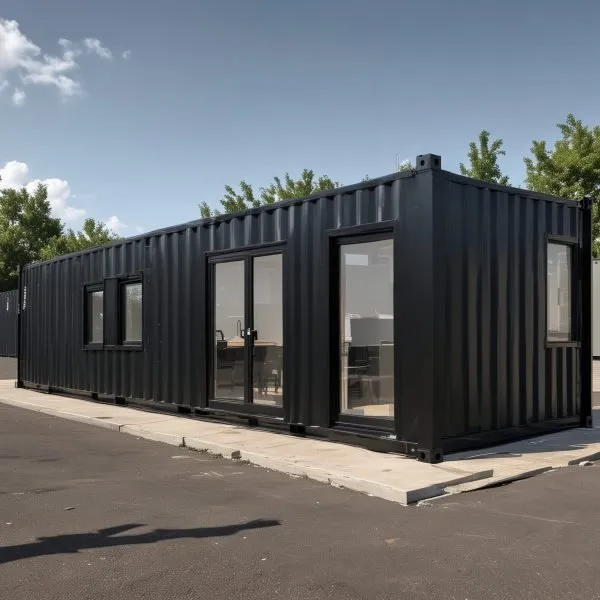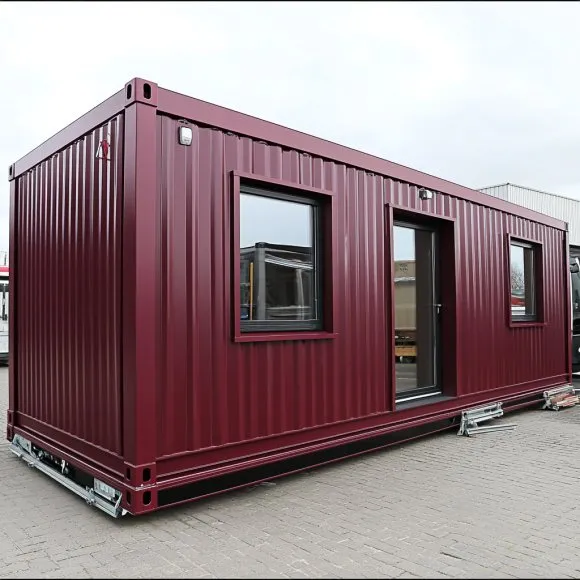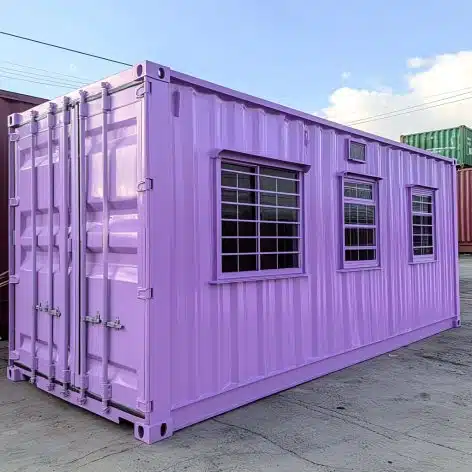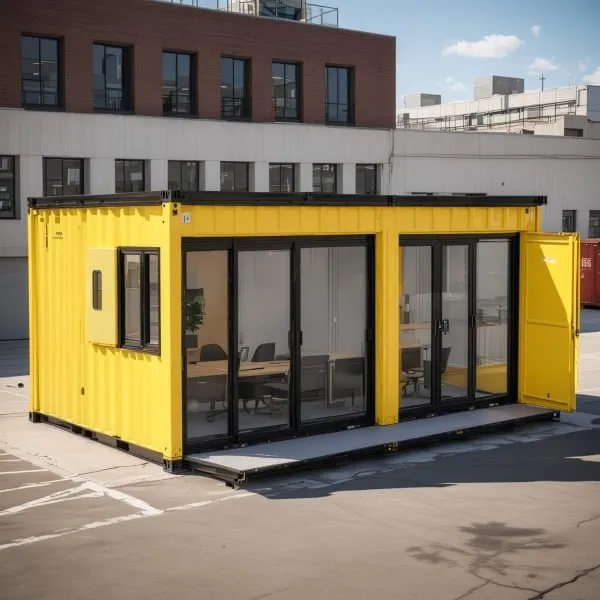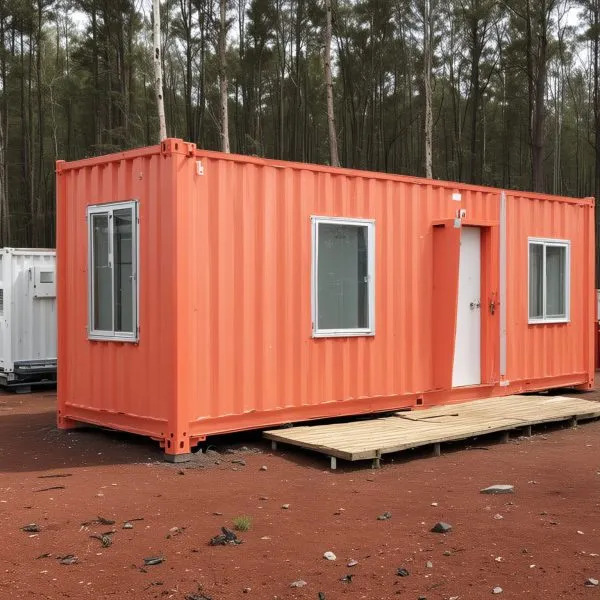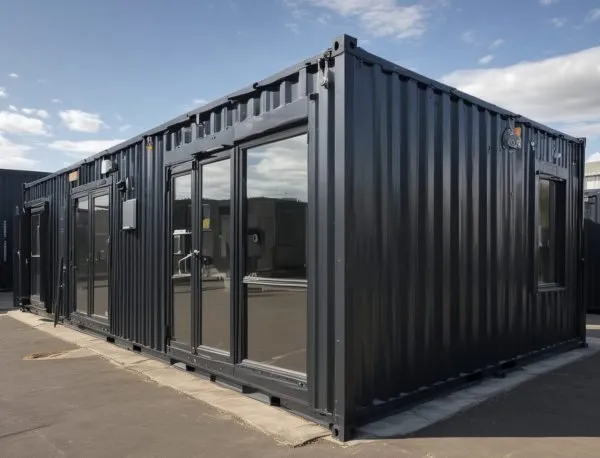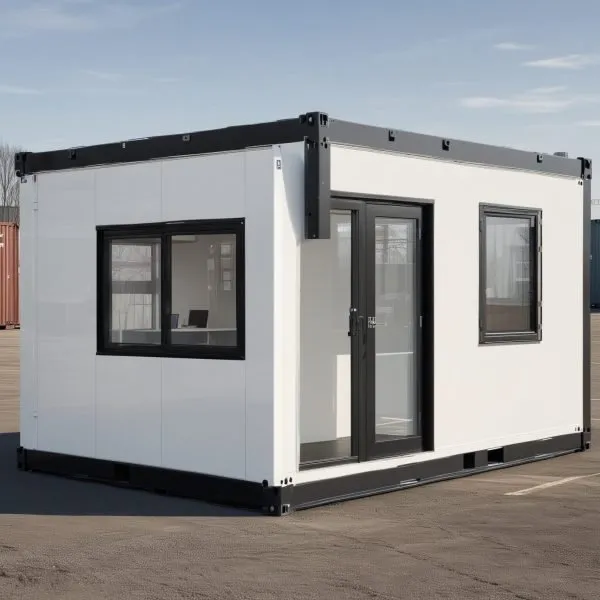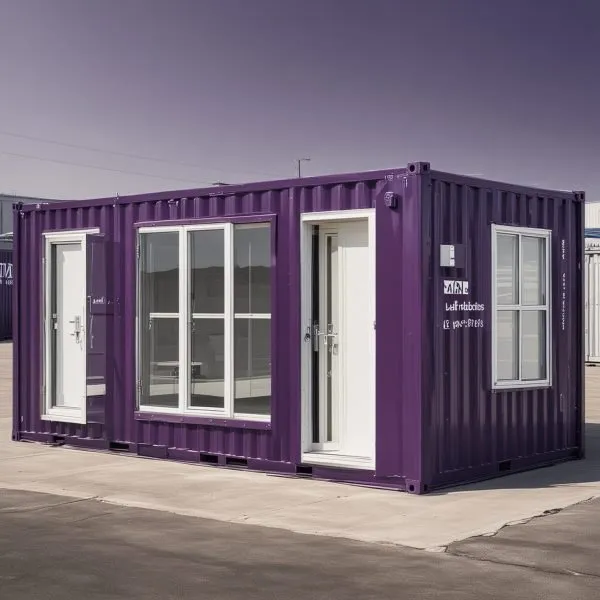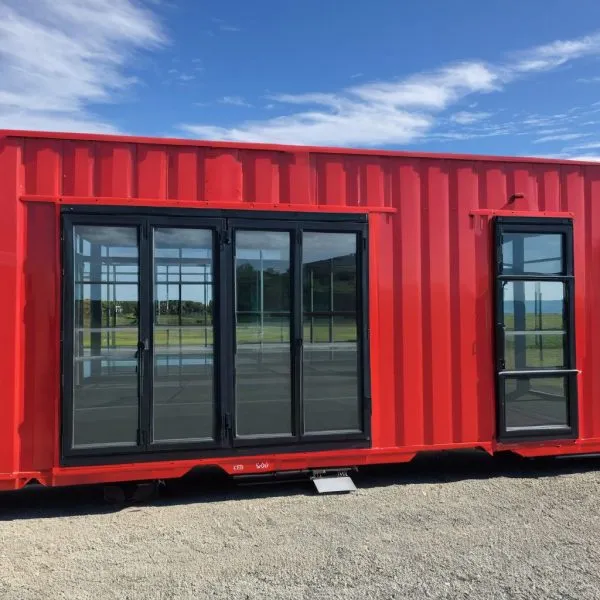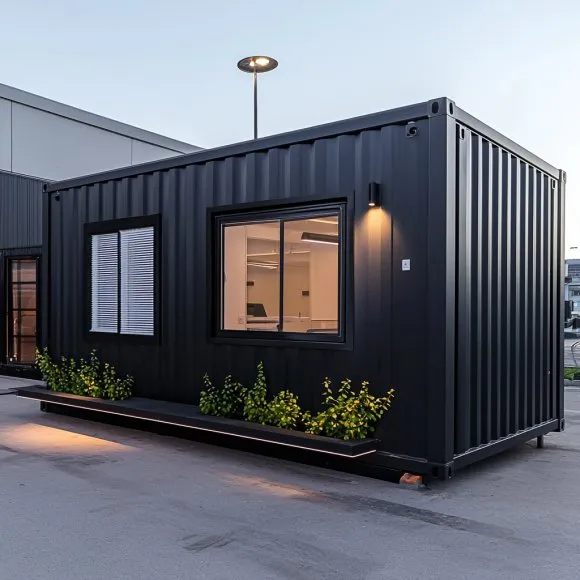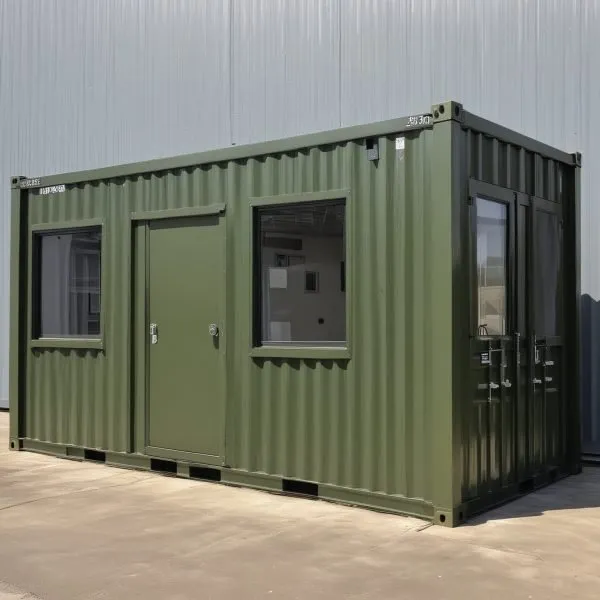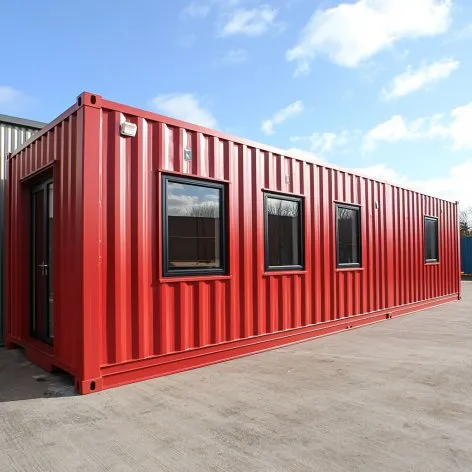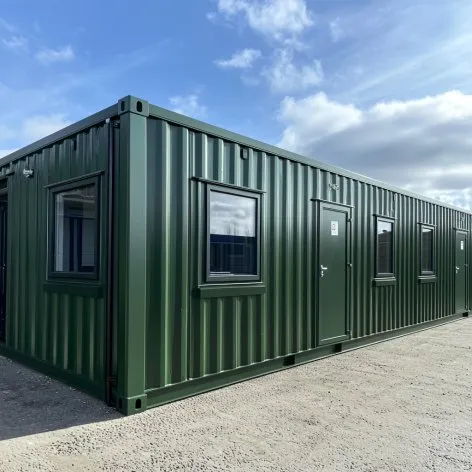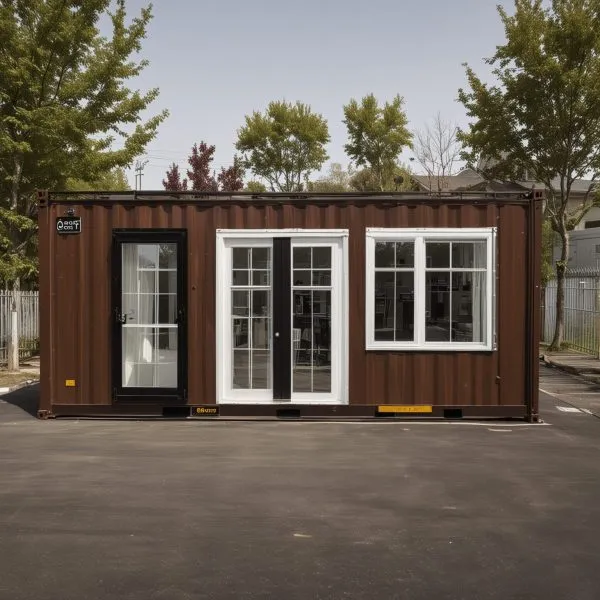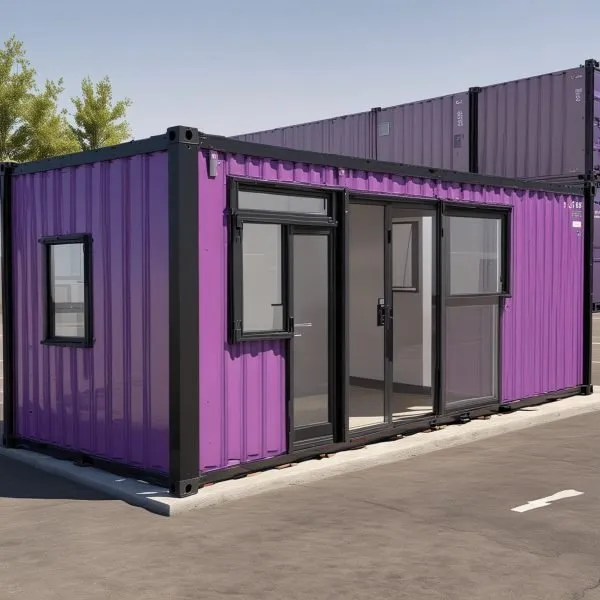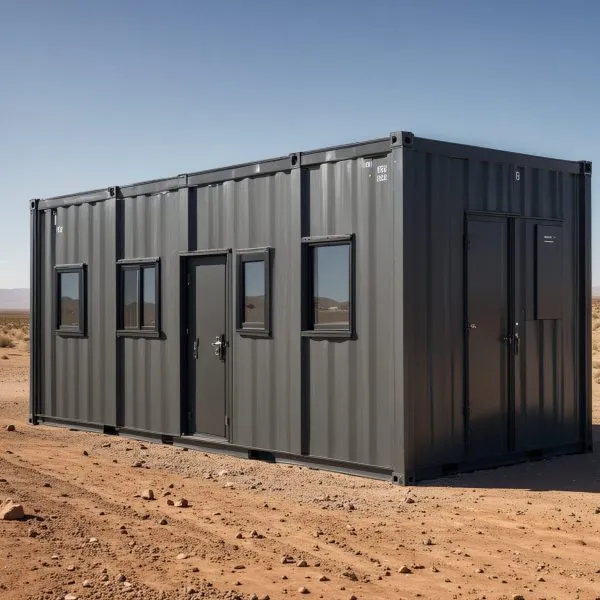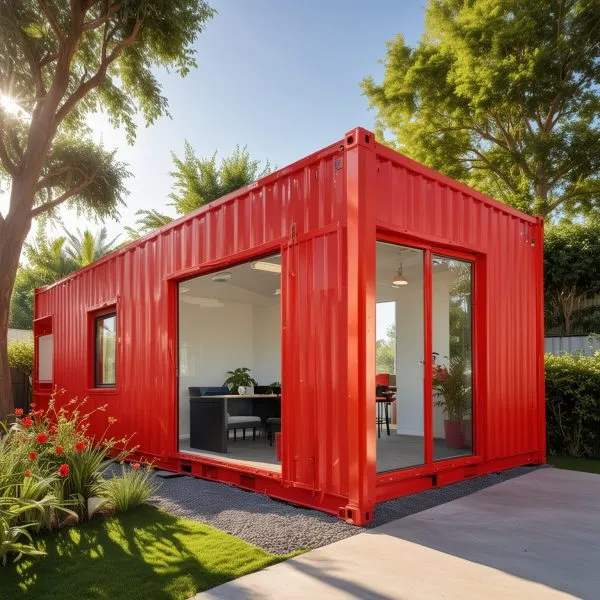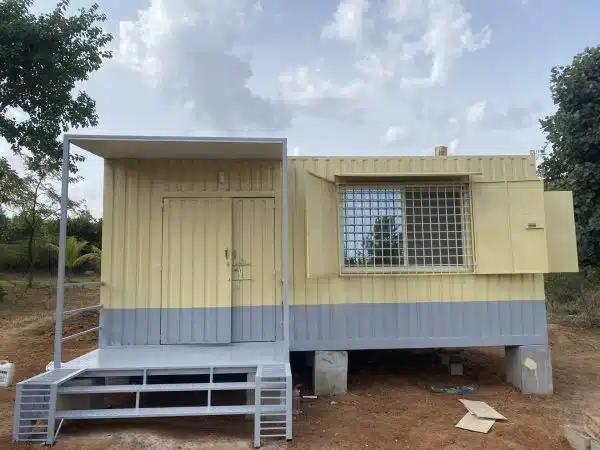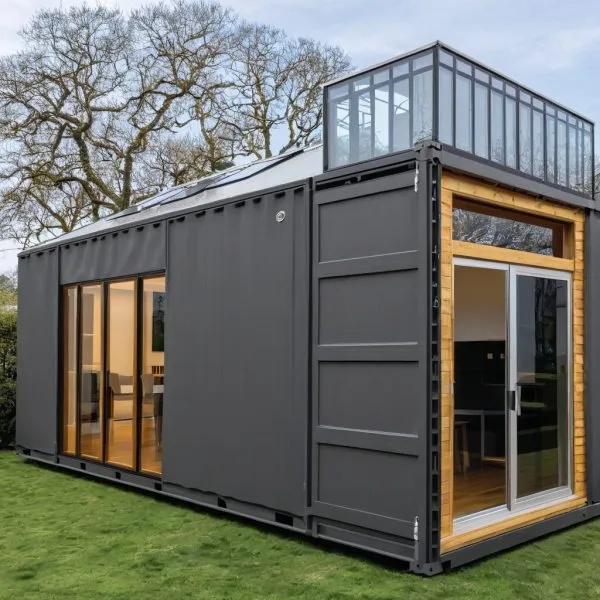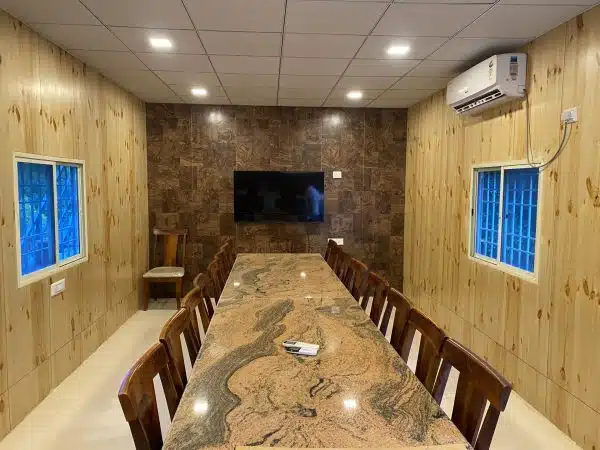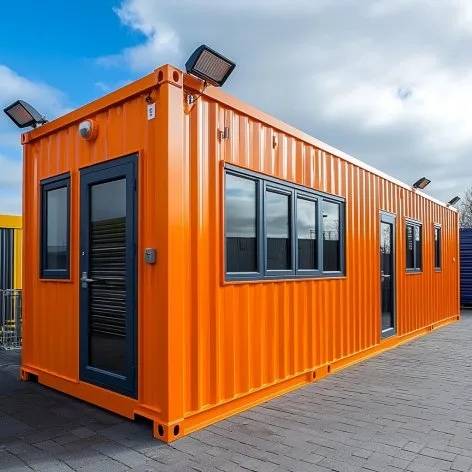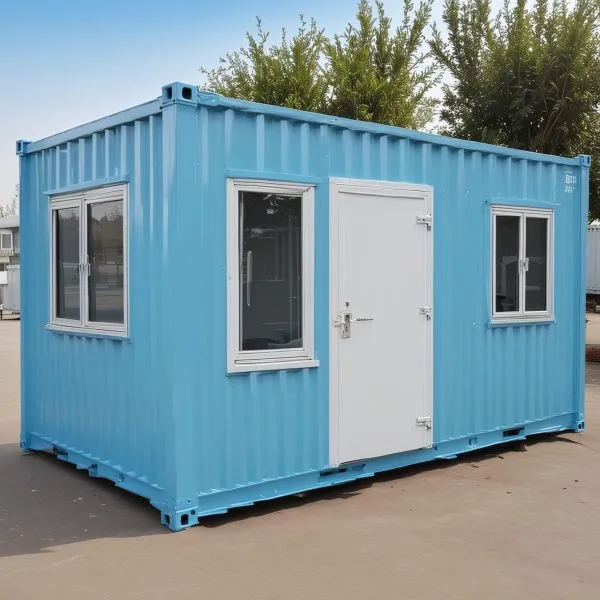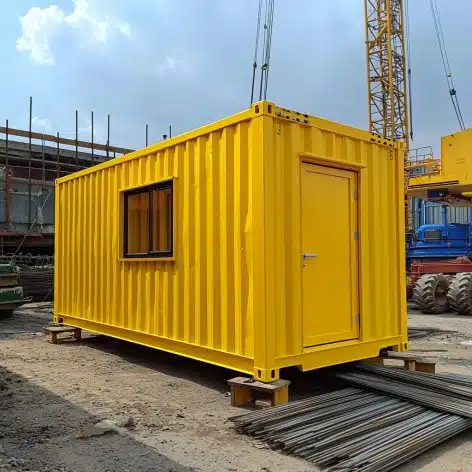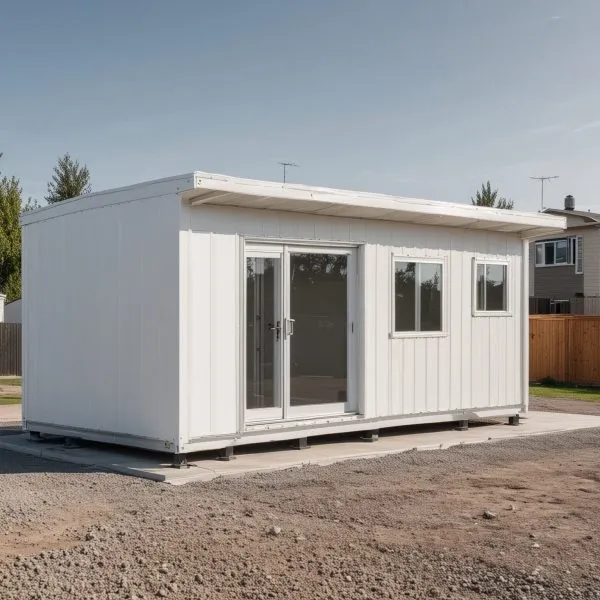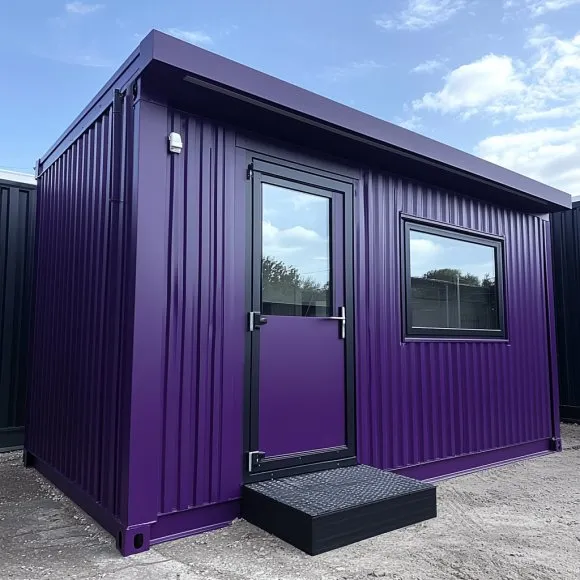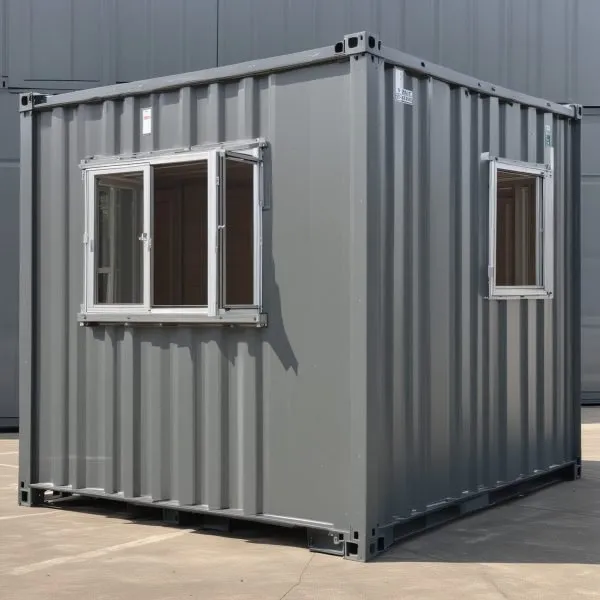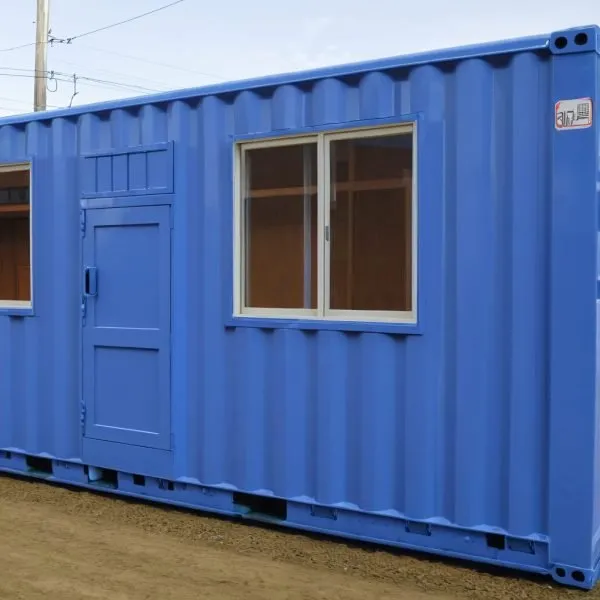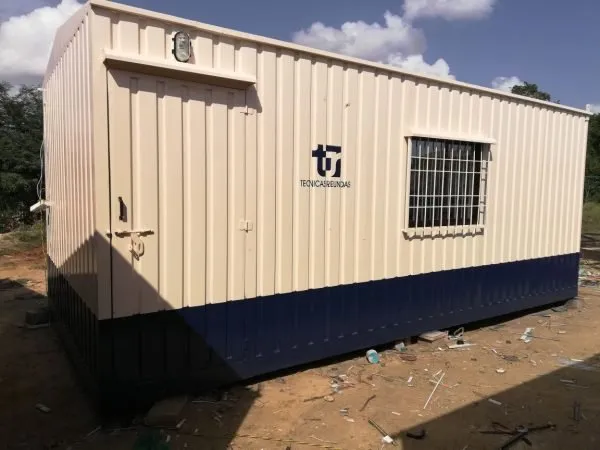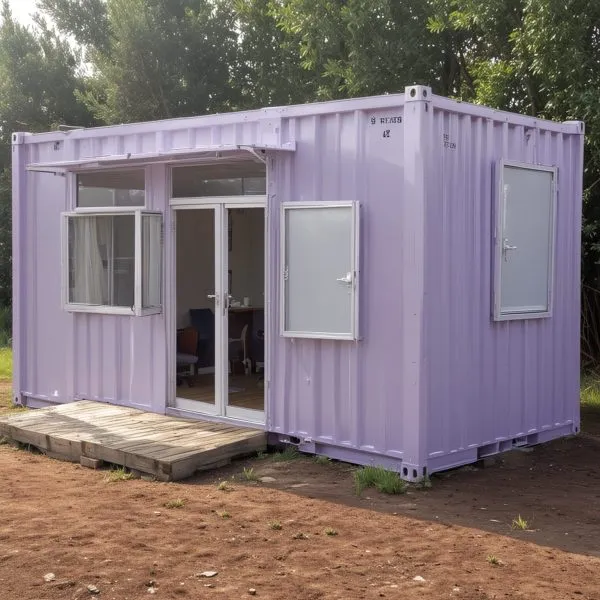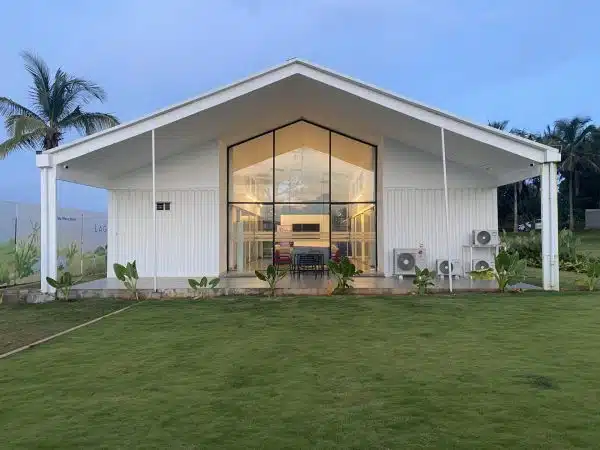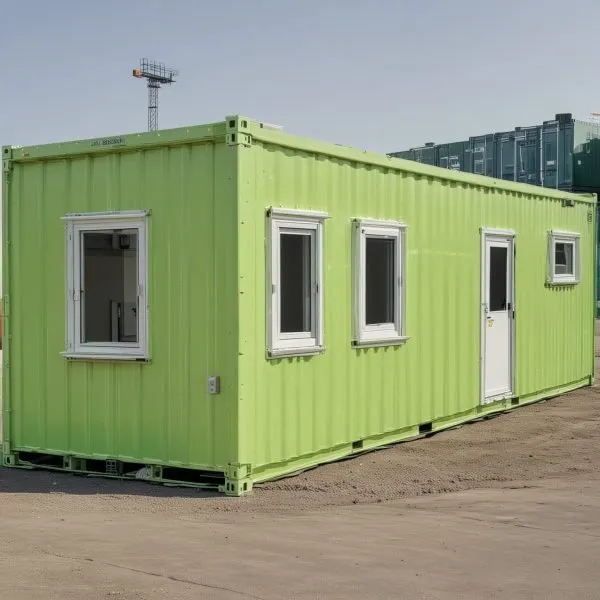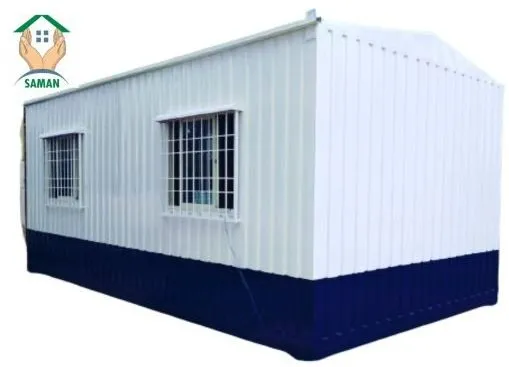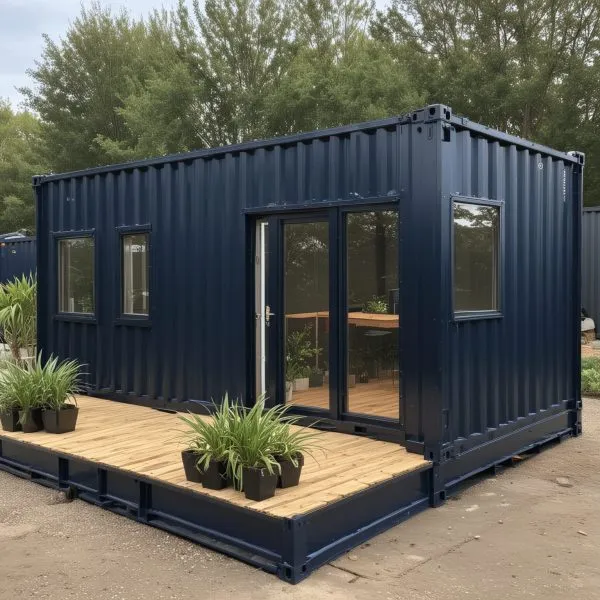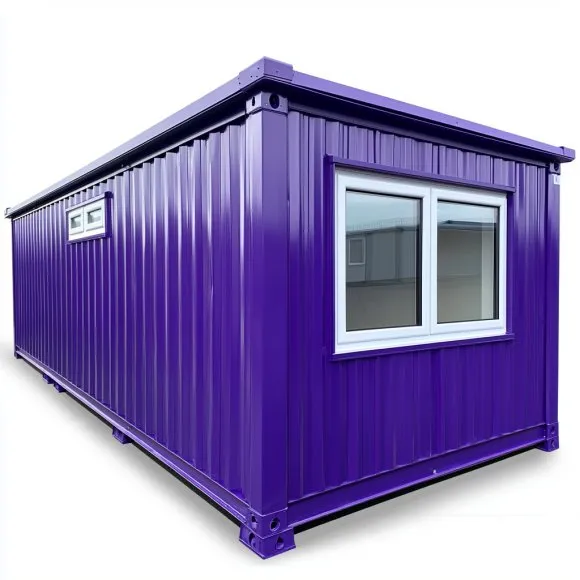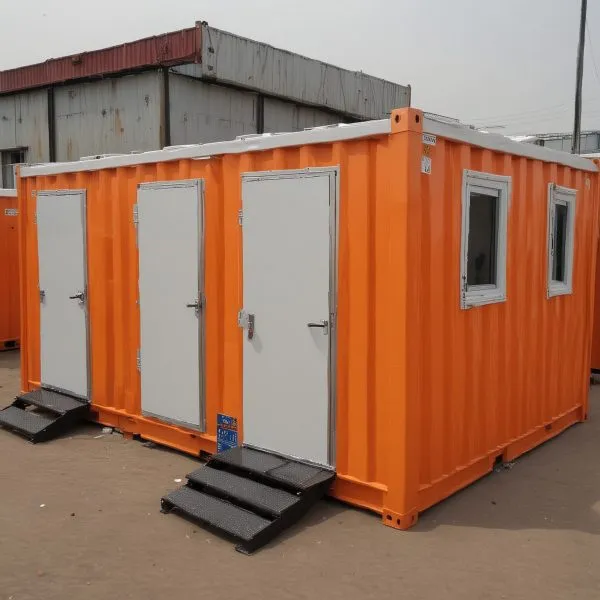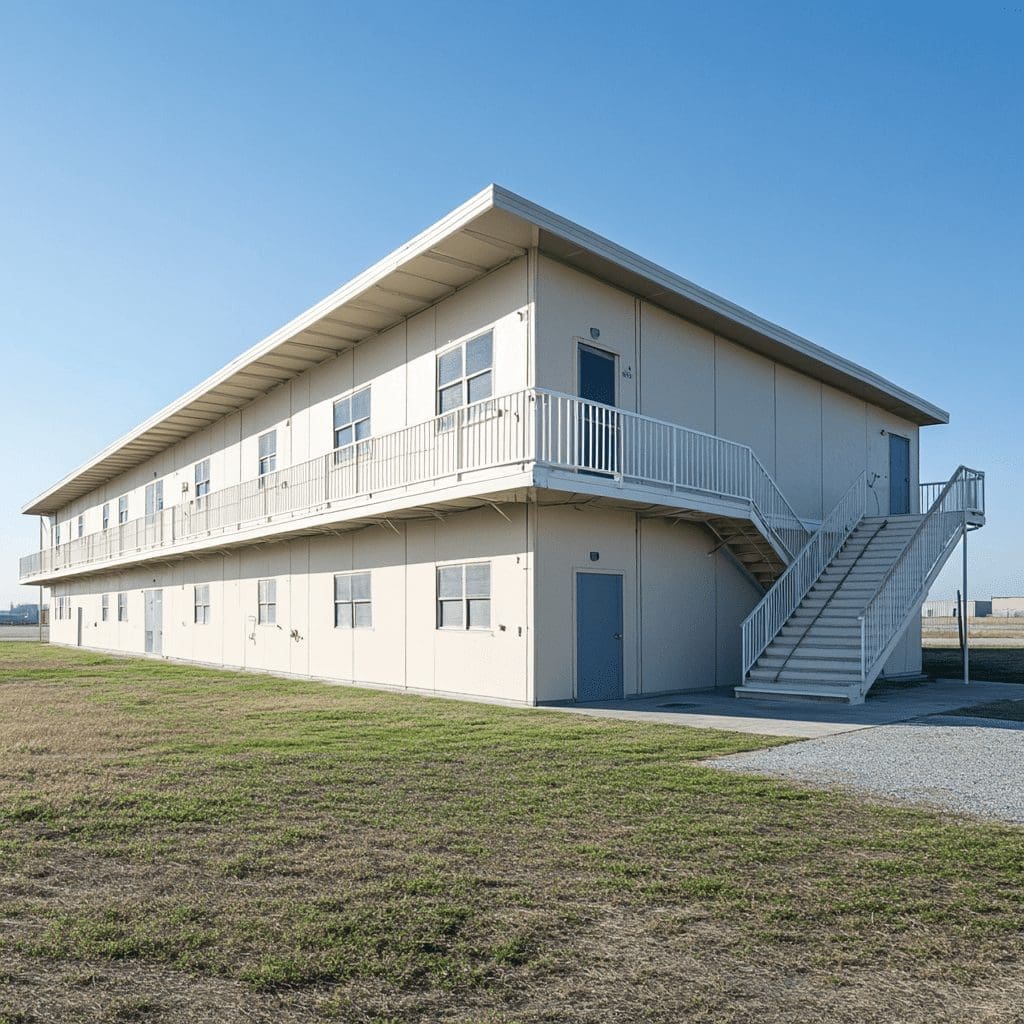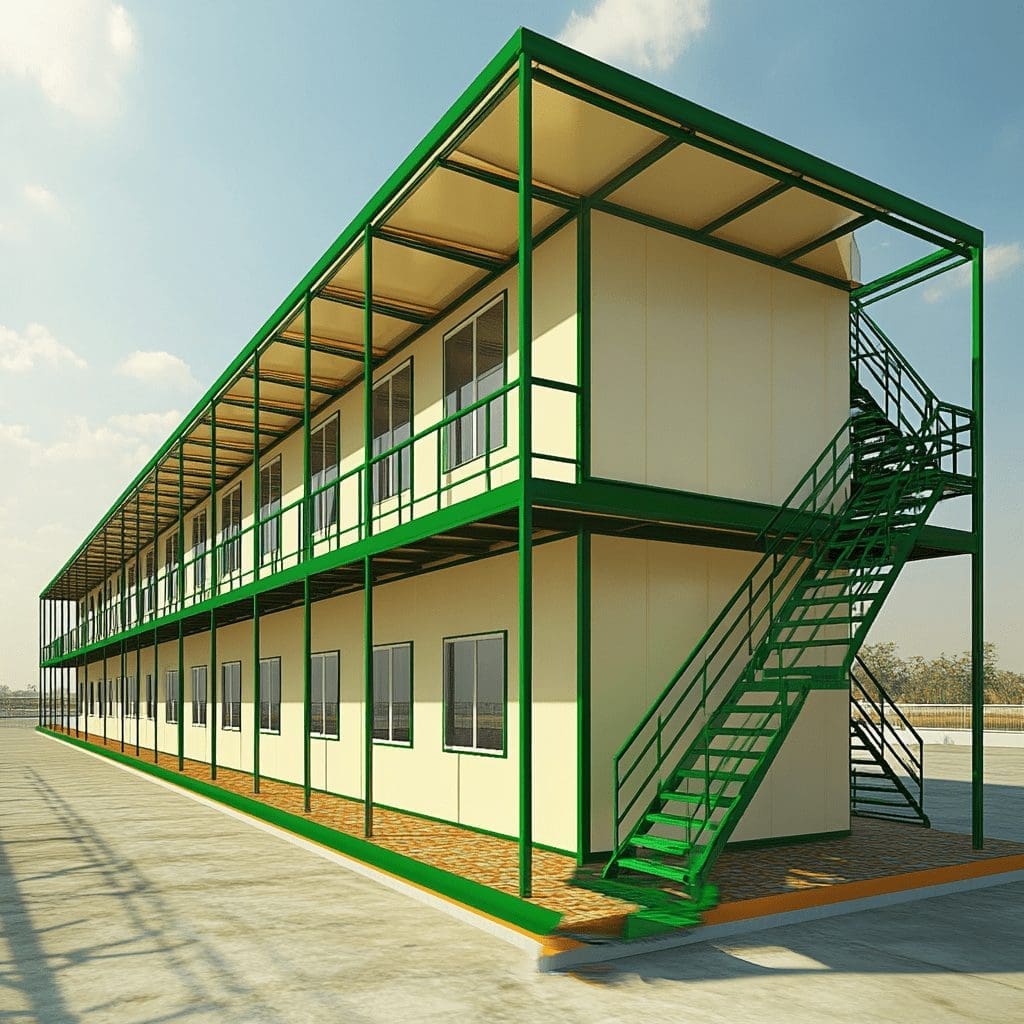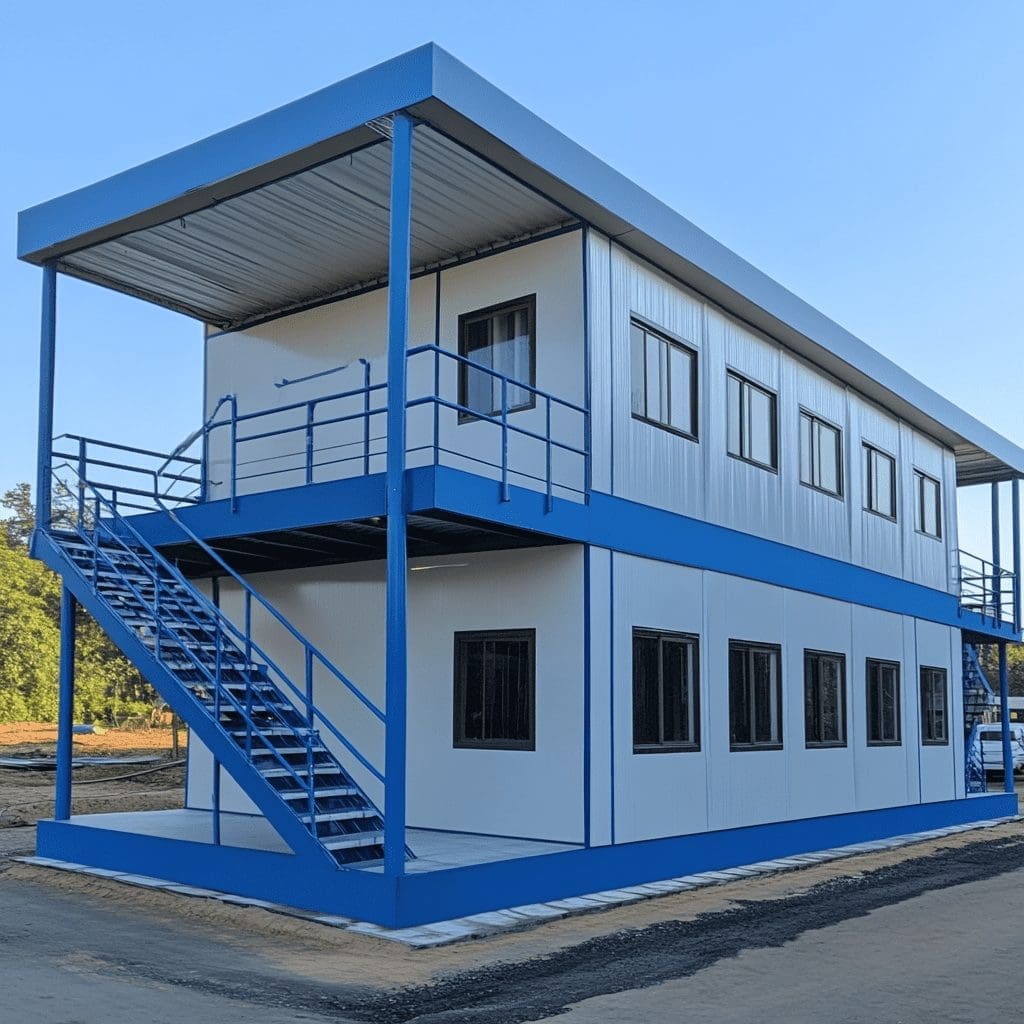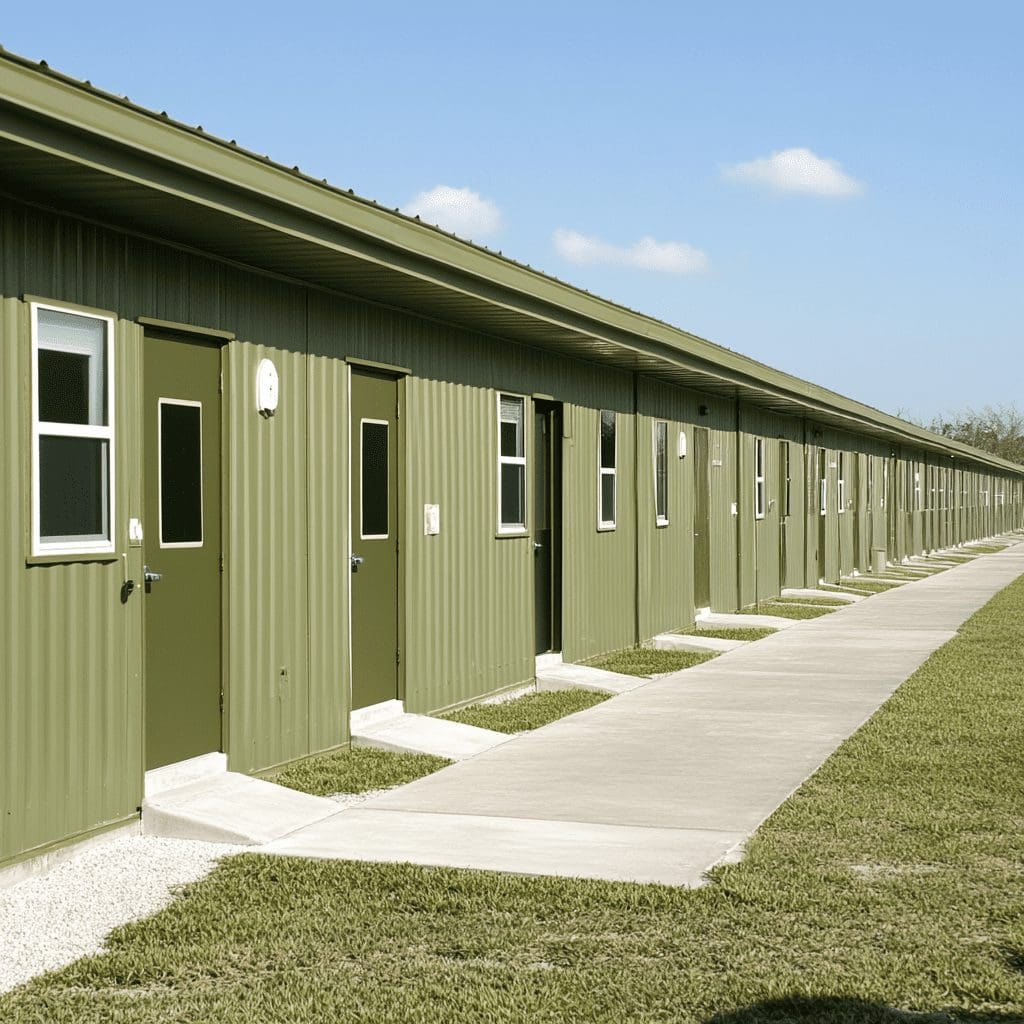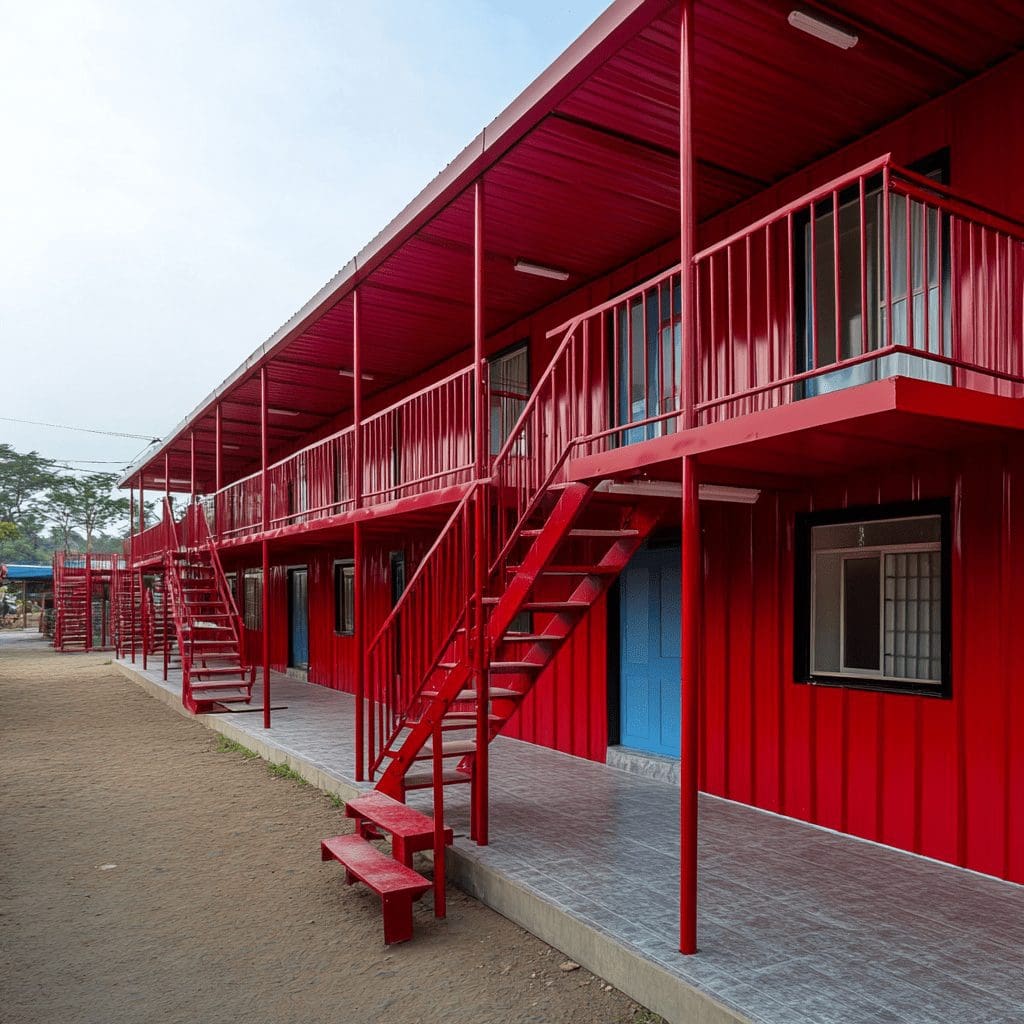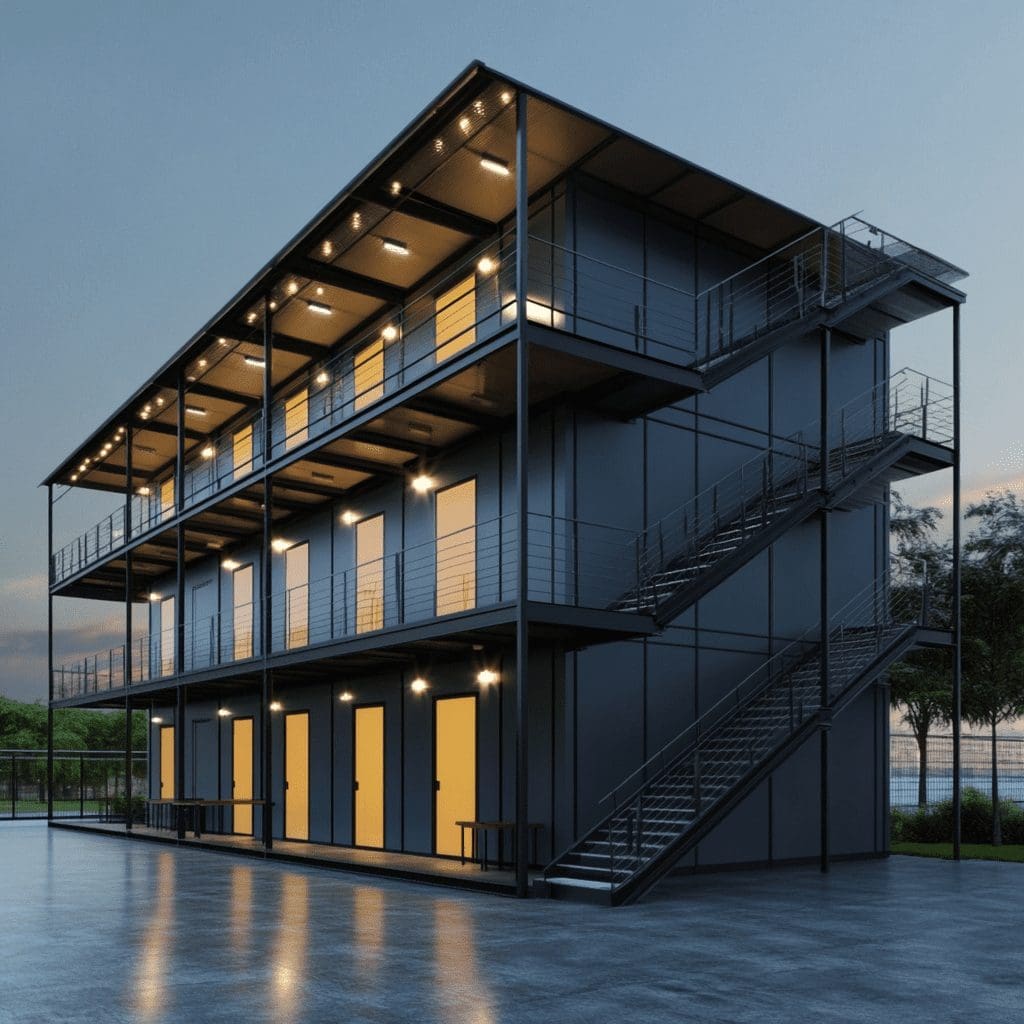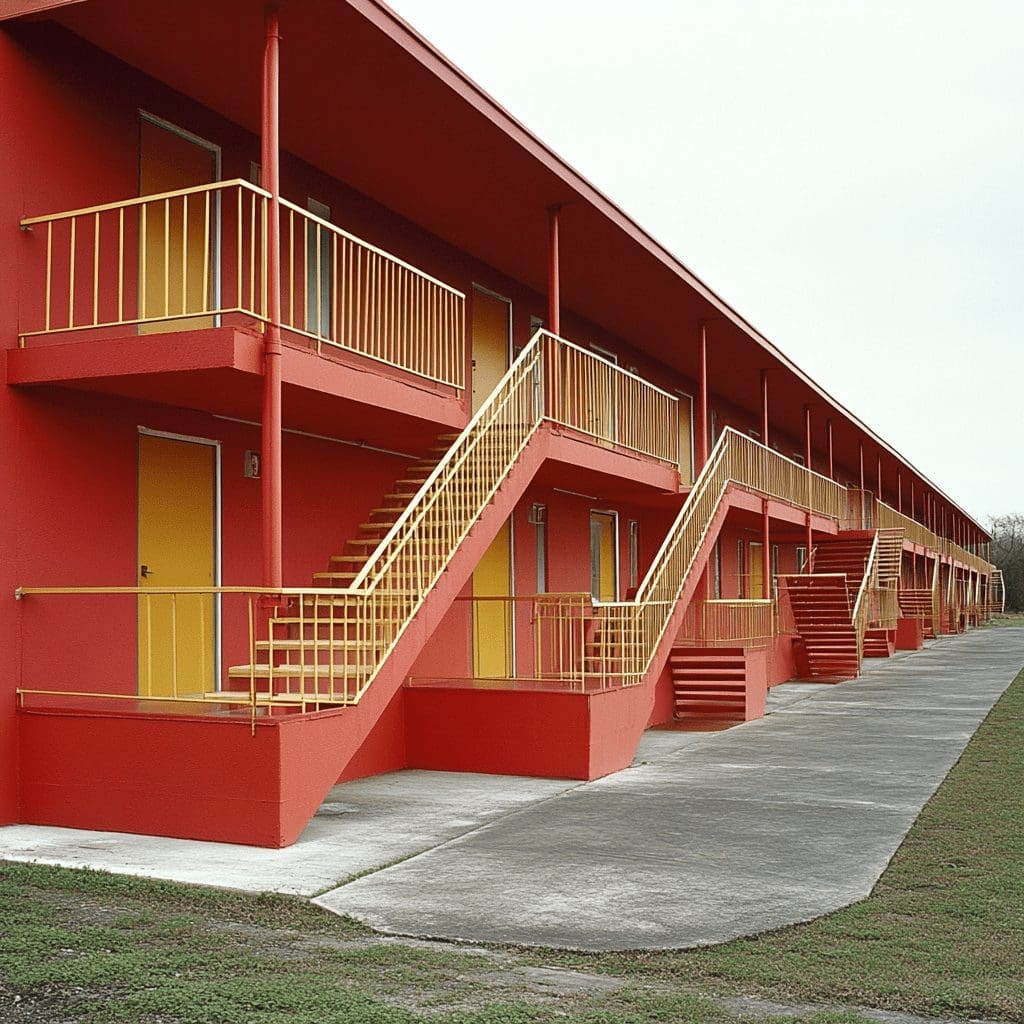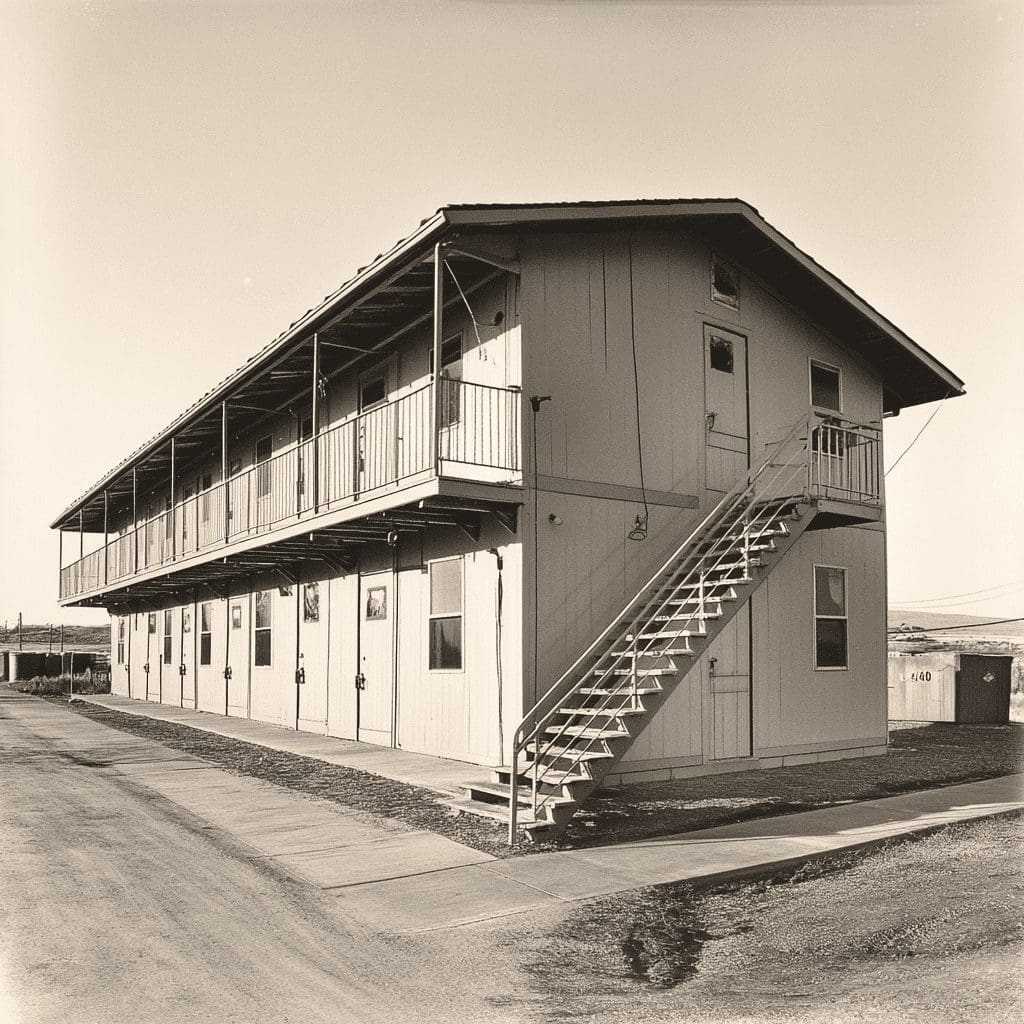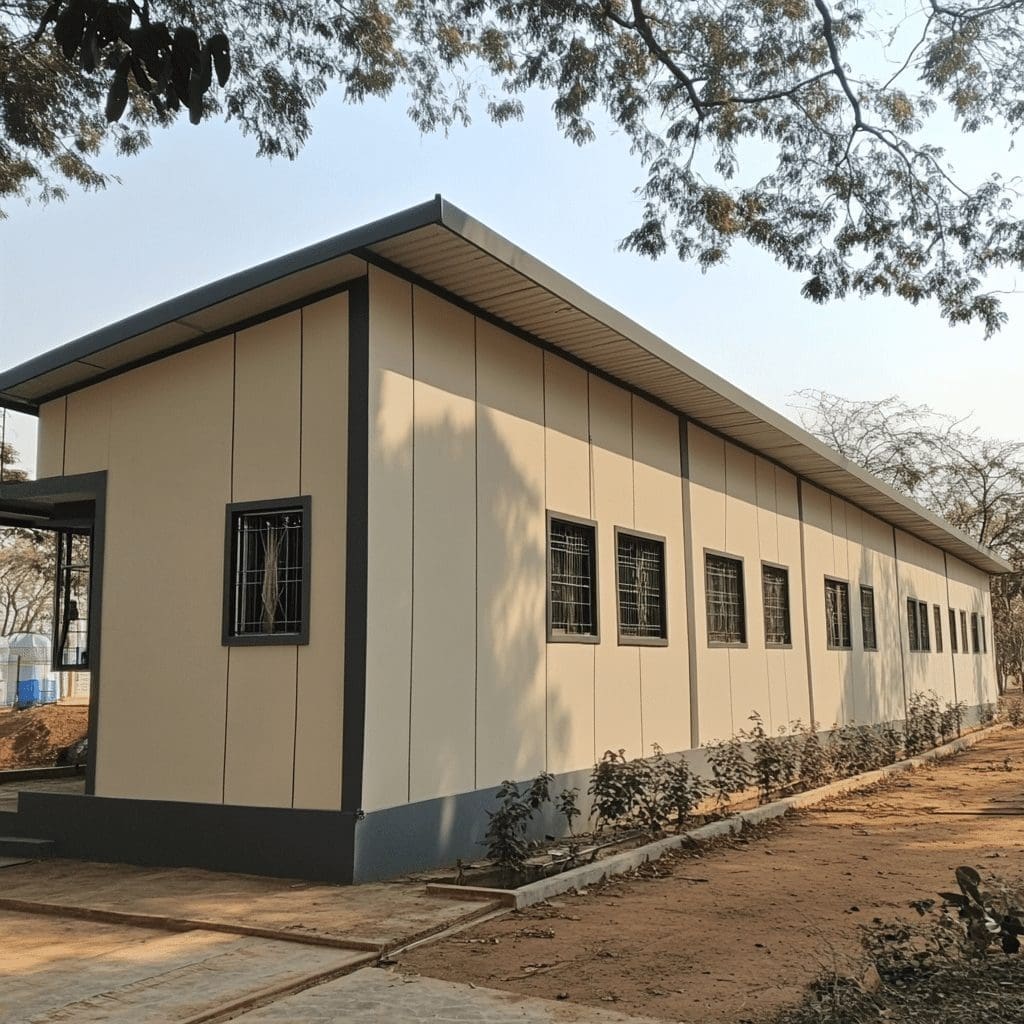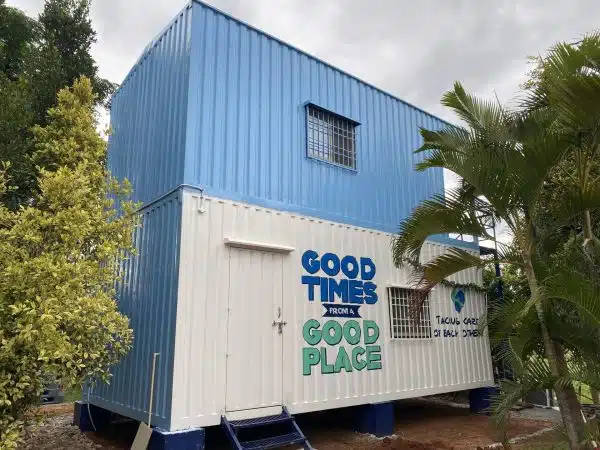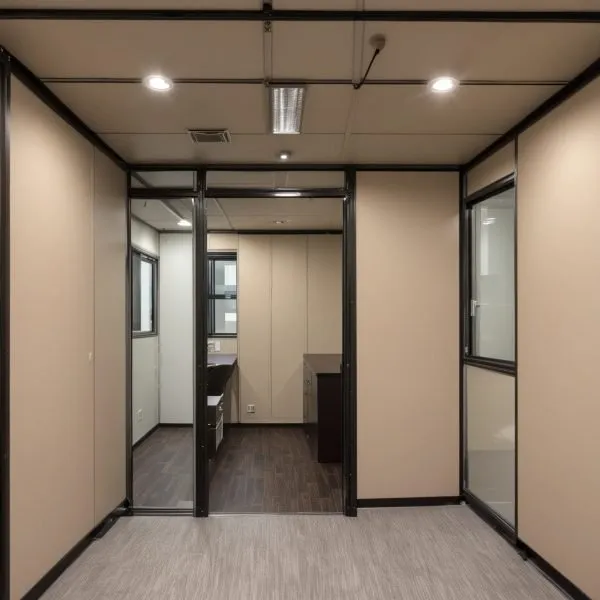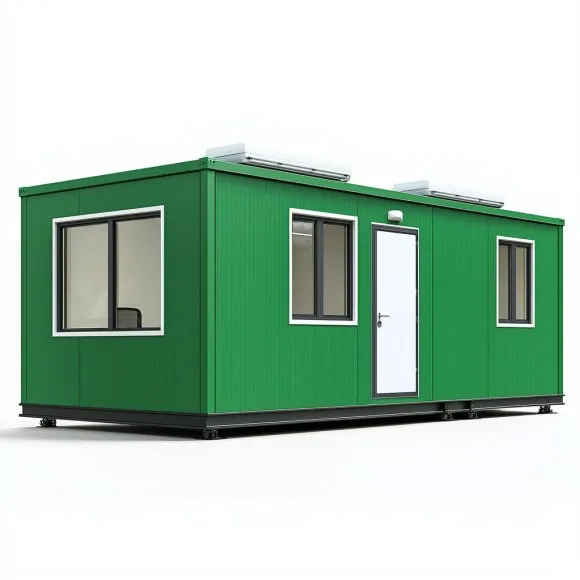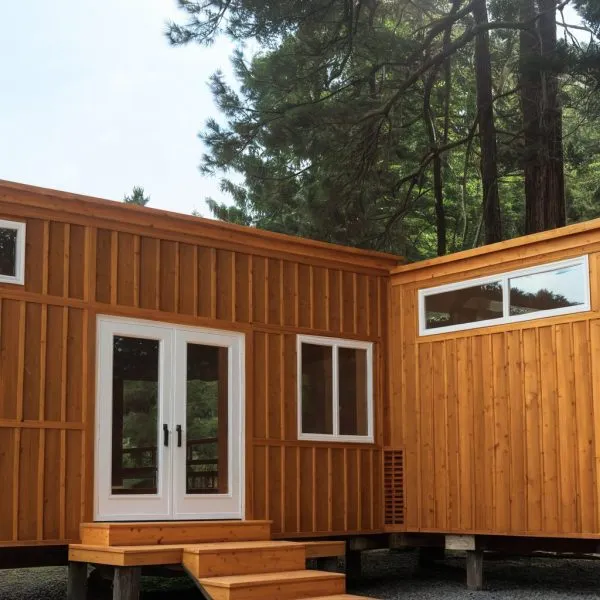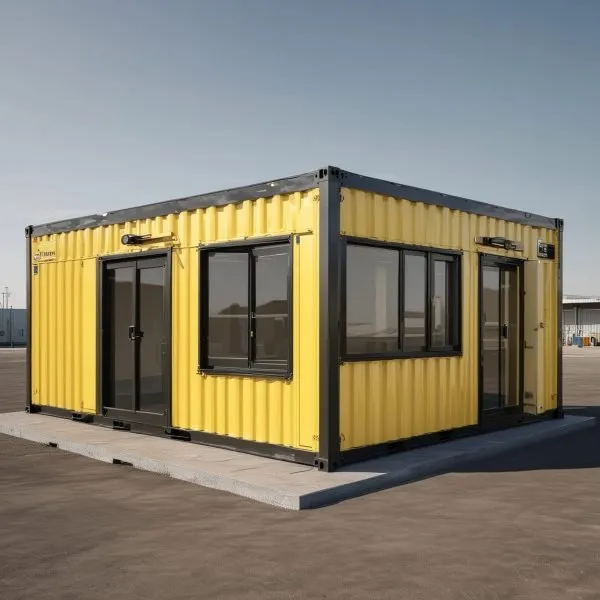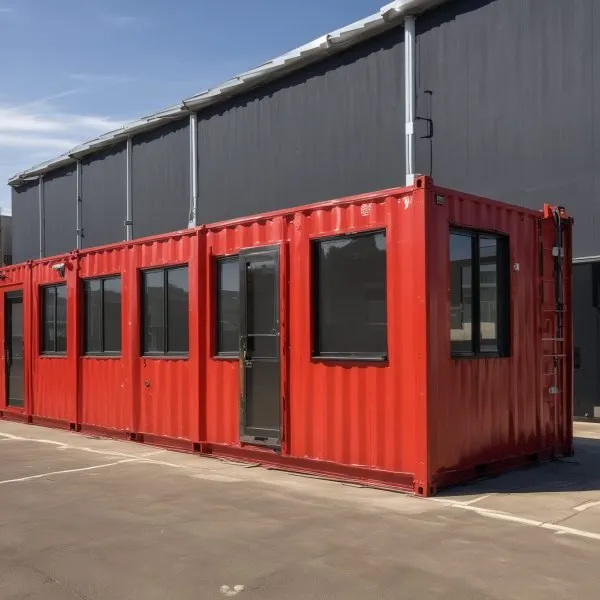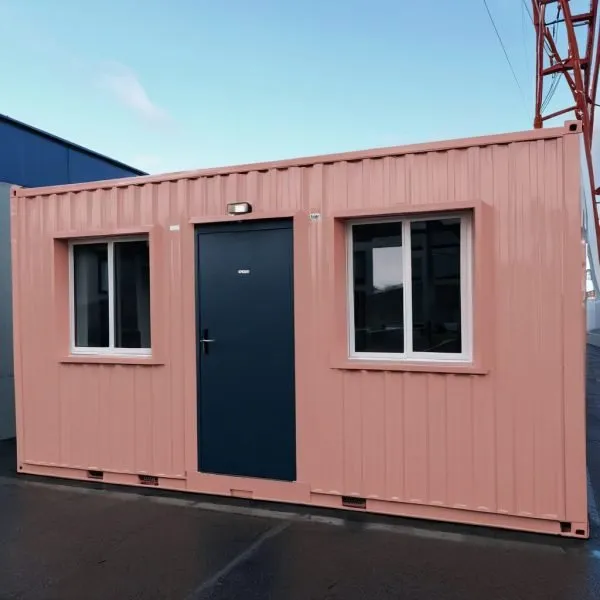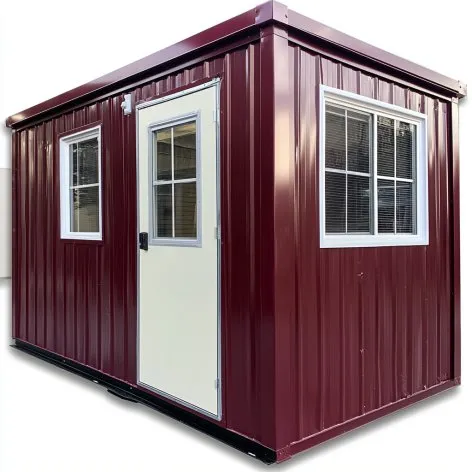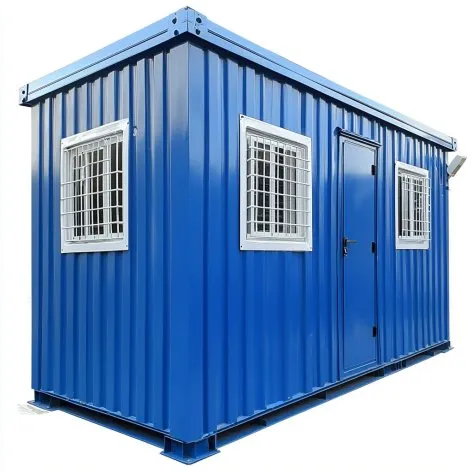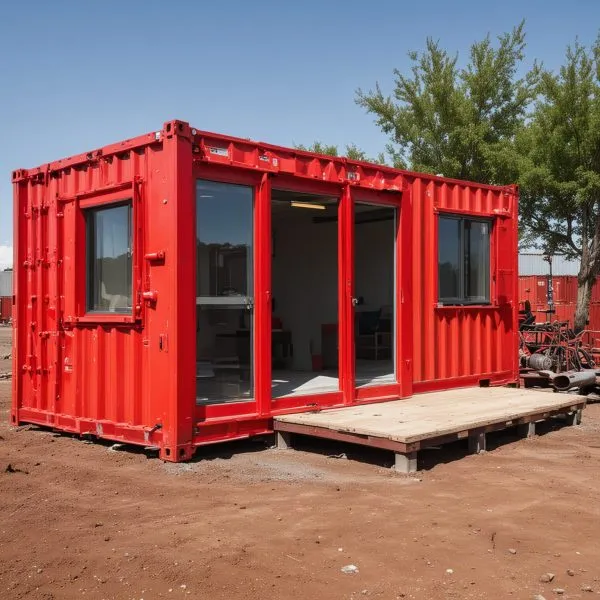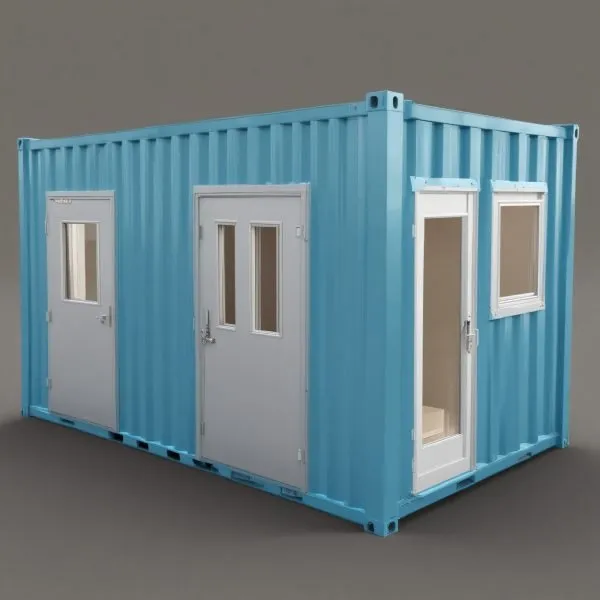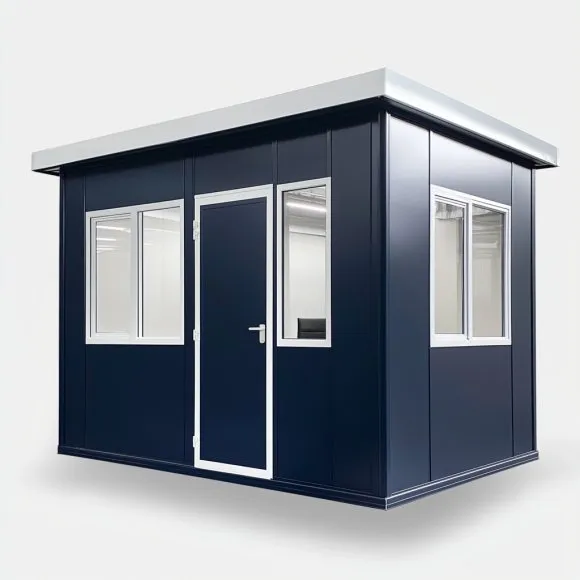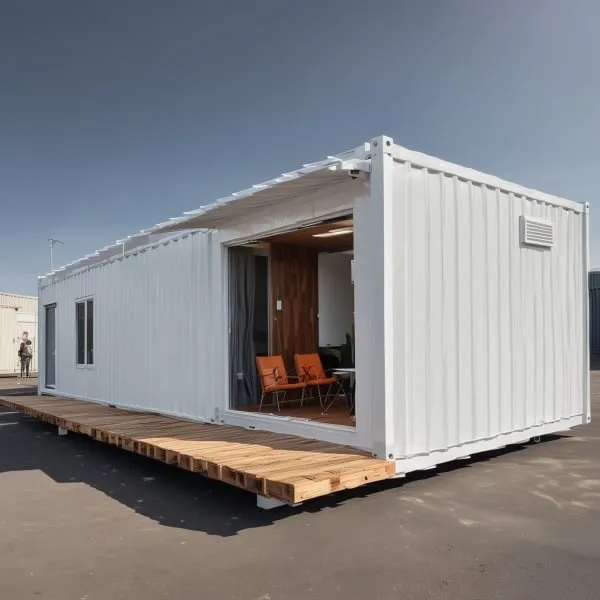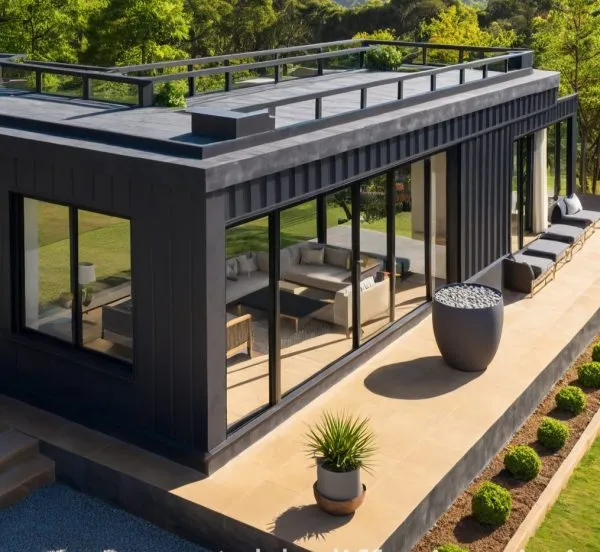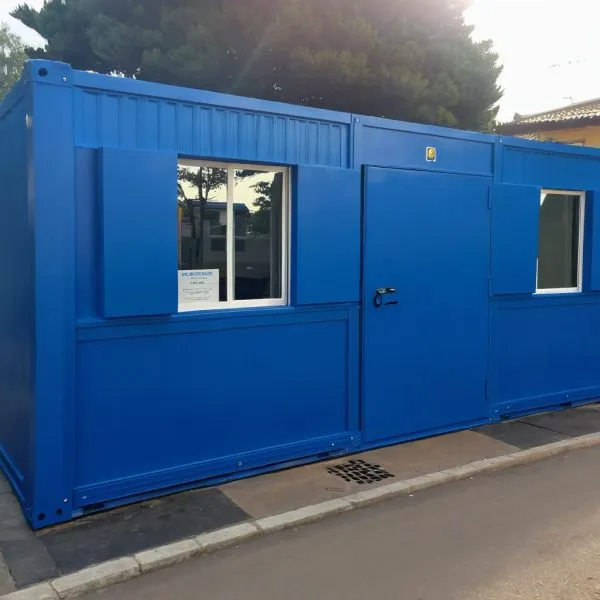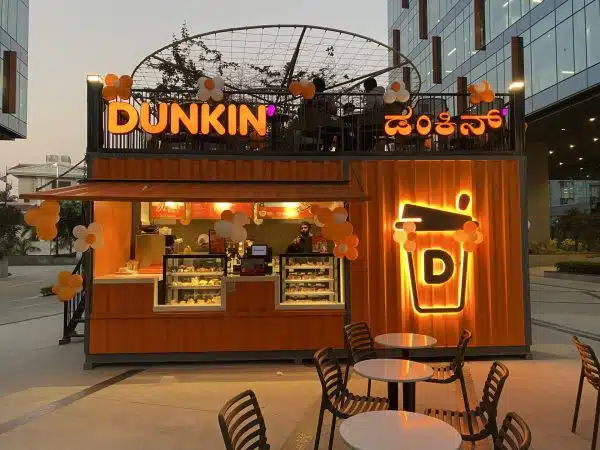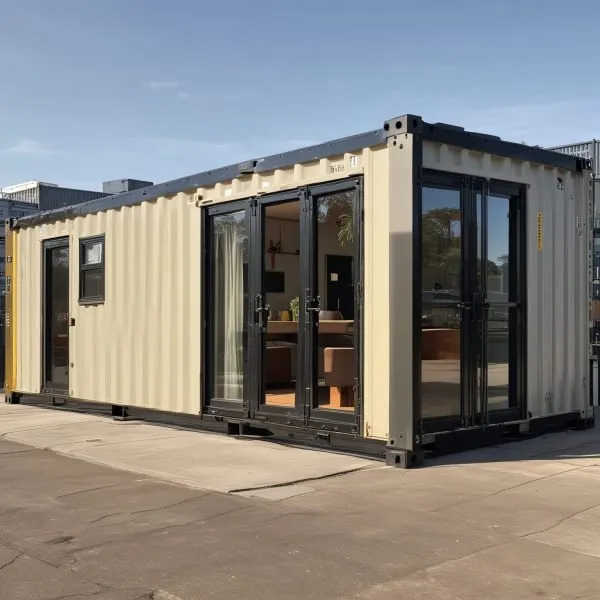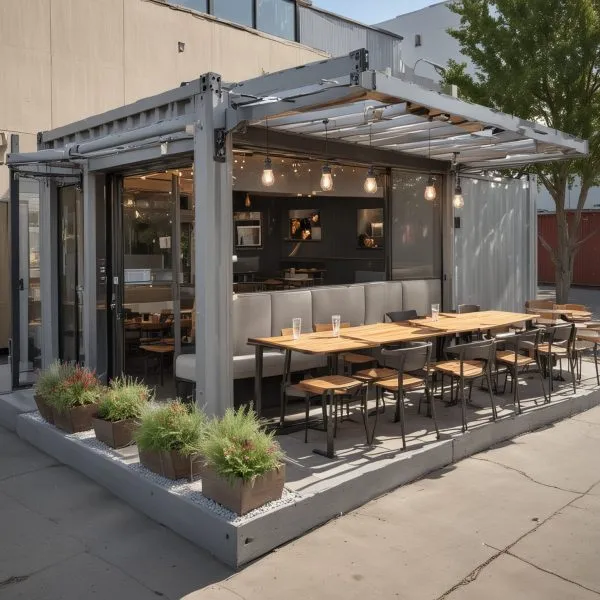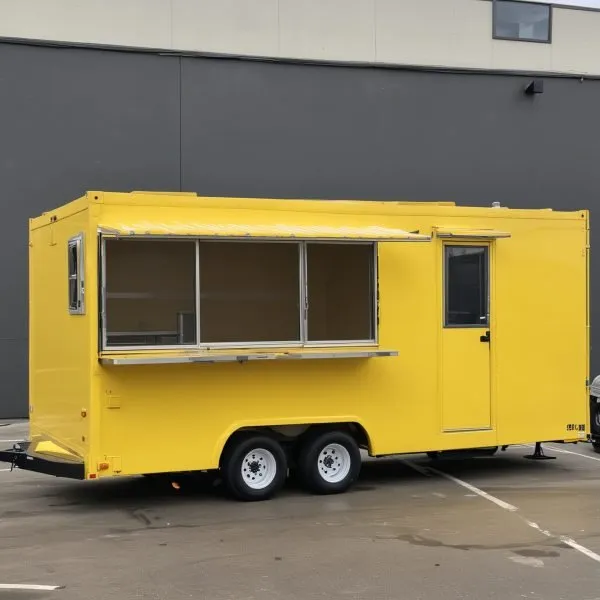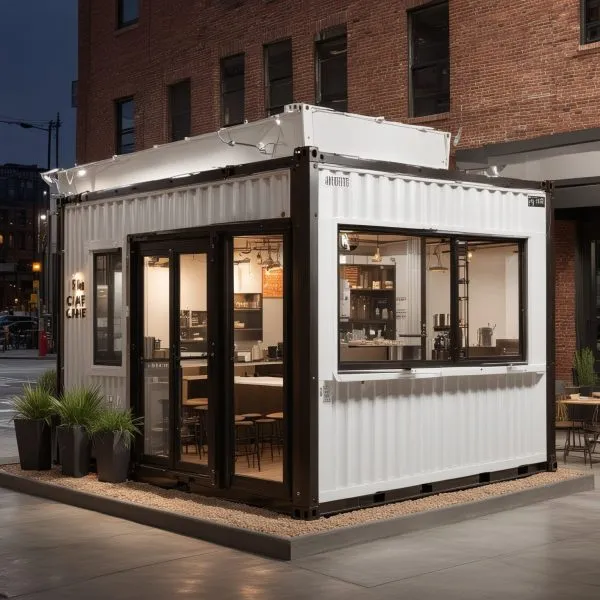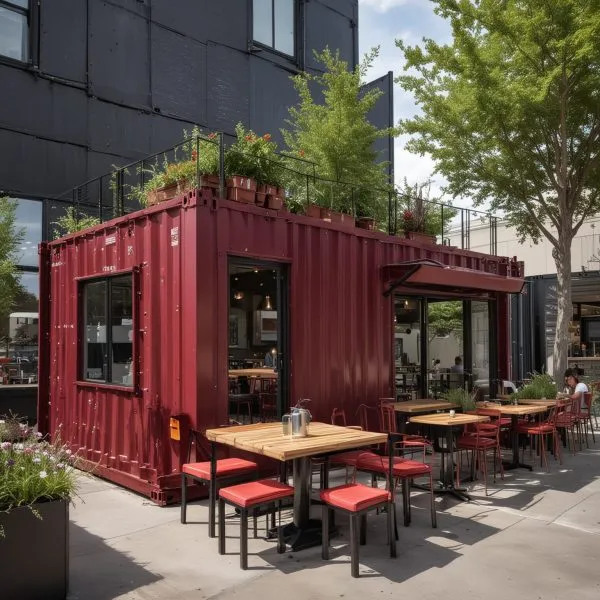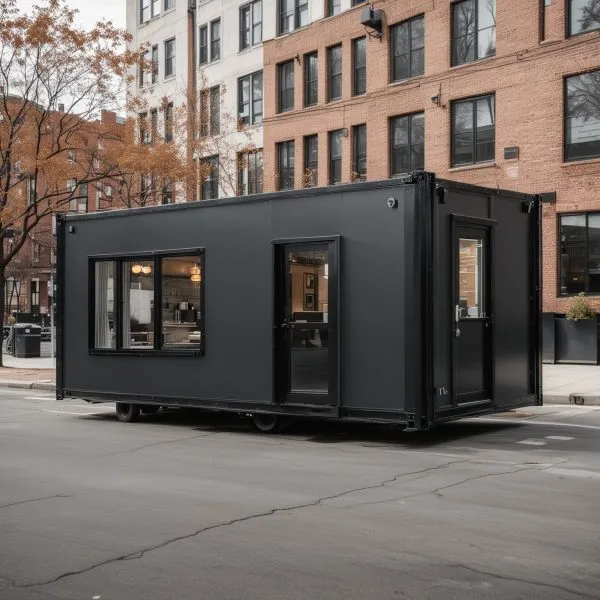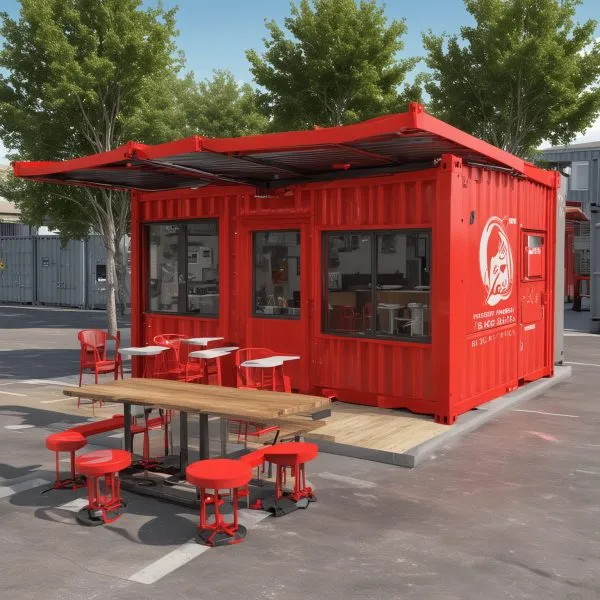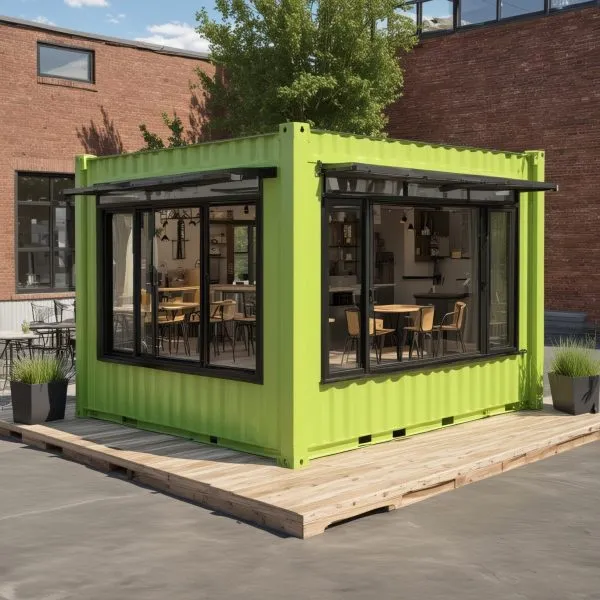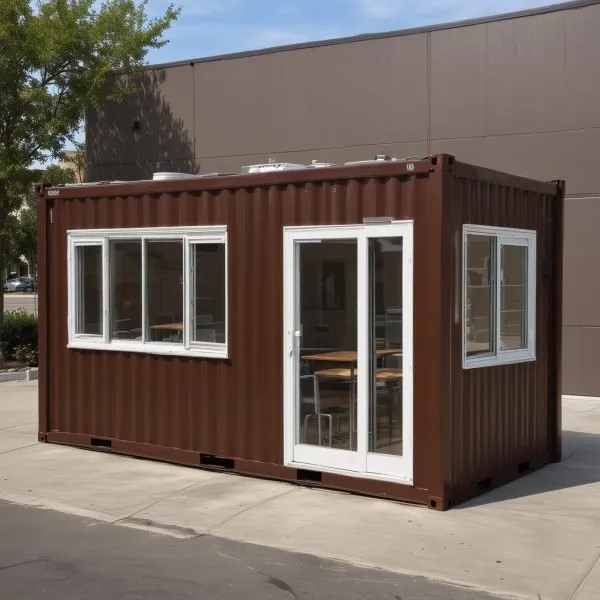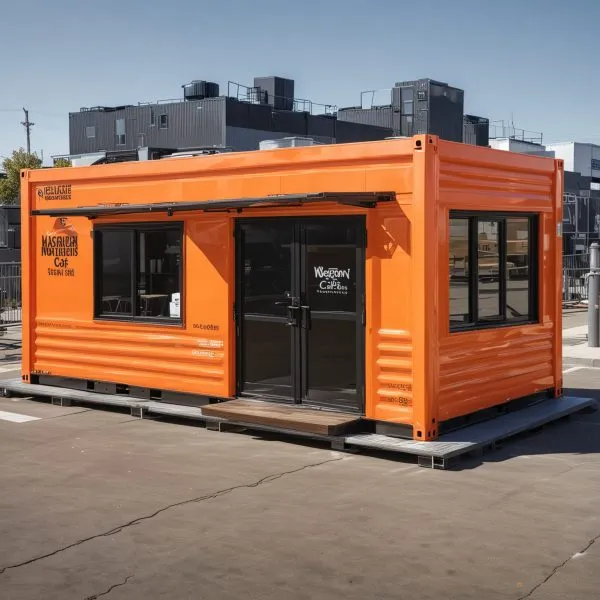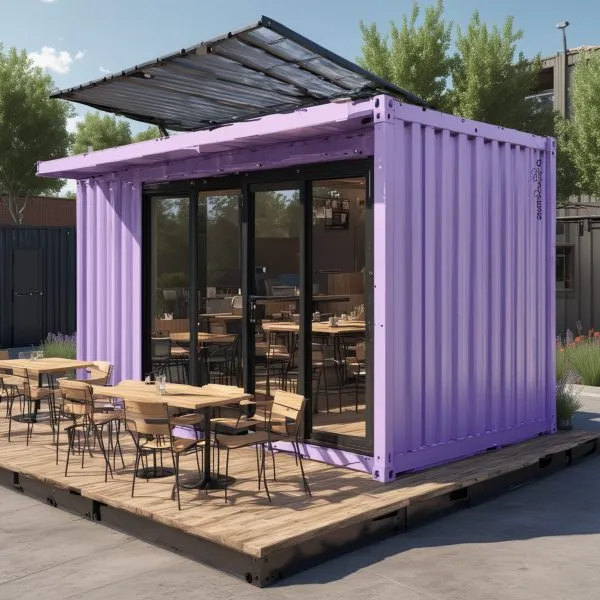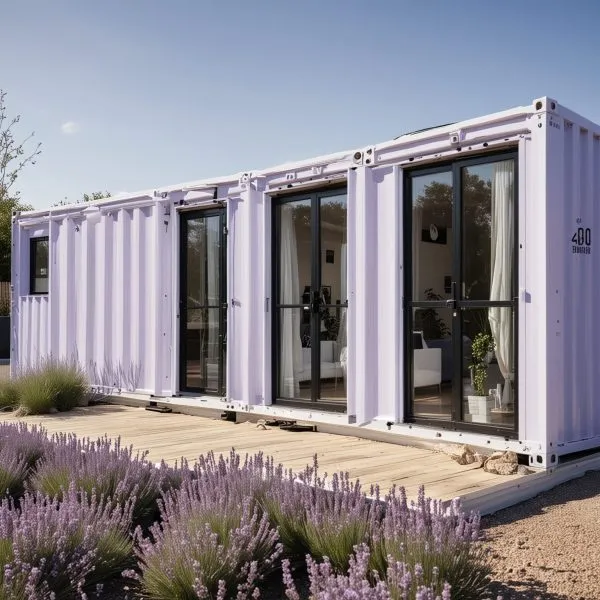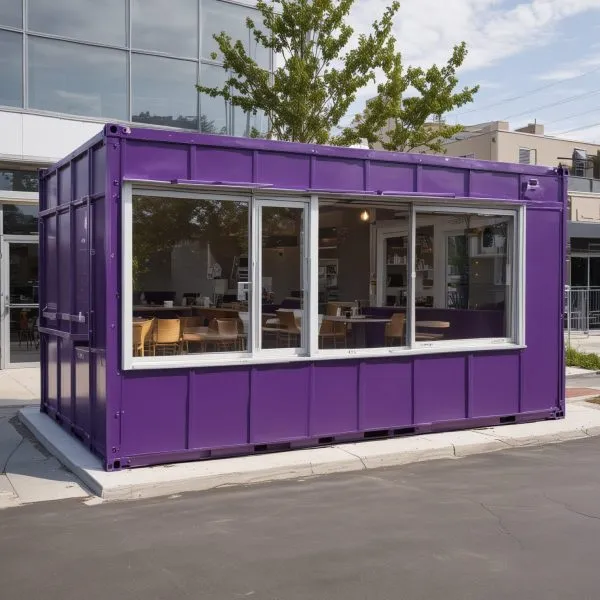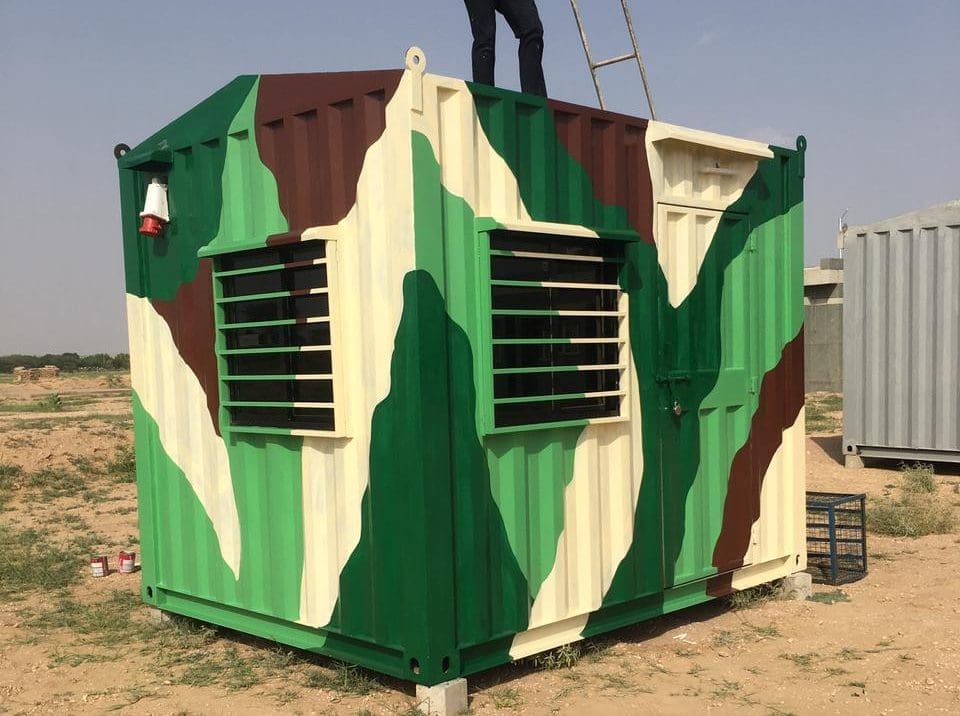Containers as Offices: Innovative, Cost-Effective, and Sustainable Workspace Solutions
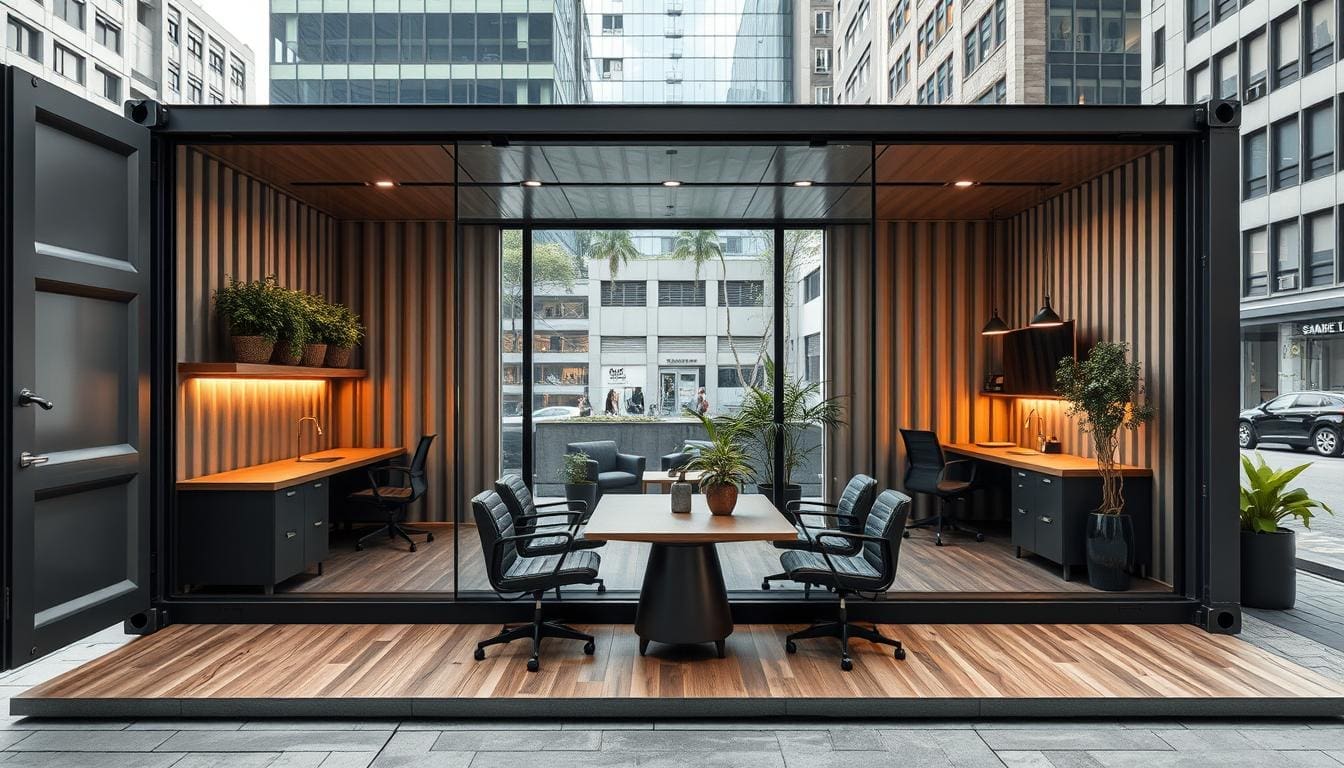
In today’s rapidly evolving business landscape, the need for adaptable, cost-efficient, and environmentally conscious workspace solutions has become increasingly paramount. But have you ever considered converting shipping containers into modern office spaces? This innovative approach to office design is revolutionizing the way we think about workspaces, offering a wealth of benefits that traditional construction simply cannot match.
What if we told you that the humble shipping container, once used solely for transporting goods, has now become a versatile and ingenious solution for businesses seeking a competitive edge? Discover how these container offices are redefining the concept of the workplace, seamlessly blending functionality, flexibility, and sustainability to meet the dynamic needs of the modern workforce.
Key Takeaways
- Container offices provide a cost-effective alternative to traditional construction, with lower initial investment and ongoing operational costs.
- These modular structures offer unparalleled adaptability, allowing businesses to easily expand or downsize their workspace as needed.
- Container offices are an eco-friendly choice, repurposing shipping containers and reducing the carbon footprint compared to new building construction.
- Portable and durable, container offices can be easily transported and installed in remote or urban settings, catering to diverse business needs.
- Container offices showcase remarkable versatility, serving as functional workspaces for various industries, from construction to mining.
Understanding Modern Container Office Solutions
In the ever-evolving world of office design, a growing trend has emerged that offers businesses a flexible, cost-effective, and sustainable alternative to traditional workspaces – container offices. These innovative solutions, crafted from repurposed shipping containers, are redefining the way we approach office infrastructure, catering to the needs of modern enterprises.
What Defines a Container Office
A container office is a functional workspace that utilizes a shipping container as its foundation. These robust, modular structures are transformed into fully-fledged offices, complete with amenities and customizations to meet the specific needs of businesses.
Key Features of Modern Container Workspaces
- Modularity: Container offices offer unparalleled flexibility, allowing for easy configuration and reconfiguration to accommodate changing business needs.
- Sustainability: By repurposing shipping containers, these solutions provide a eco-friendly alternative to traditional office construction, reducing waste and environmental impact.
- Cost-effectiveness: Container offices often require lower upfront investments and ongoing maintenance costs compared to conventional office buildings.
Evolution of Container Architecture
The design and engineering of container offices have undergone a remarkable evolution, with innovative architects and designers pushing the boundaries of what’s possible. From sleek, minimalist aesthetics to highly customized, multi-functional layouts, the modern container workspaces seamlessly blend functionality, sustainability, and aesthetic appeal.

These versatile prefab office cabins are now being embraced by businesses of all sizes, providing immediate, durable, and efficient container offices suitable for various industries and environments, from bustling urban centers to remote locations.
Benefits of Converting Shipping Containers into Offices
Converting shipping containers into offices offers numerous advantages, making them an attractive solution for businesses seeking cost-efficient and sustainable workspace options. These container housing solutions provide a lower initial investment compared to traditional construction, with the average cost of a container office being just over $100 per square foot, as opposed to $238 to $286 per square foot for a conventional single-story office building.
Beyond the financial benefits, modern container homes also offer rapid deployment, allowing businesses to set up their offices quickly and reduce downtime. Shipping containers are designed to withstand winds of up to 160 km/h, ensuring structural durability and safety for various office applications. Additionally, the ability to easily transport and relocate these affordable prefab houses makes them a preferred choice for mobile offices, pop-up marketing kiosks, and event spaces.
The environmental sustainability of eco-friendly container houses is another significant advantage. Repurposing used shipping containers reduces the use of new construction materials, contributing to waste reduction and aligning with sustainable development practices. With an expected lifespan of over 20 years, these modified container offices offer long-term, low-maintenance solutions for businesses.

The versatility and flexibility of container offices are also noteworthy. Businesses can easily expand, relocate, or modify their workspace as needs change, thanks to the modular design and adaptability of these container housing solutions. This makes them particularly valuable for companies experiencing growth or facing evolving space requirements.
Overall, the benefits of converting shipping containers into offices are multifaceted, encompassing cost-efficiency, rapid deployment, environmental sustainability, and unparalleled flexibility. As the global demand for modern container homes and affordable prefab houses continues to rise, the advantages of eco-friendly container houses are becoming increasingly compelling for businesses seeking innovative and practical office solutions.
Containers as Offices: A Sustainable Choice for Businesses
In an era where sustainability is increasingly a top priority for companies, the rise of container offices has emerged as an innovative and eco-friendly solution for modern workspace needs. These repurposed shipping containers not only offer a durable and stylish option but also present a range of environmental benefits that align with global sustainability goals.
Environmental Impact and Carbon Footprint
Container offices have a significantly lower carbon footprint compared to traditional construction methods. By repurposing existing materials, they reduce the demand for new resources, conserving natural assets and minimizing the environmental impact of manufacturing. In fact, studies show that container offices can save up to 30% in embodied carbon emissions during the construction phase alone.
Energy Efficiency Features
Sustainable features are at the core of container offices, with energy-efficient design and technologies playing a crucial role. Proper insulation, energy-efficient lighting, and smart climate control systems help these durable housing options maintain indoor temperatures effectively, reducing the need for heating and cooling. Many container offices also incorporate renewable energy solutions, such as solar panels, further enhancing their stylish container homes and innovative housing solutions.
Waste Reduction Through Repurposing
The repurposing of shipping containers not only reduces the demand for new construction materials but also contributes to the circular economy, diverting waste from landfills. This customizable container homes approach aligns with the global effort to minimize waste and promote sustainable practices in the built environment.
By embracing container offices, businesses can demonstrate their commitment to sustainability, enhance their environmental credentials, and contribute to a greener future for all.

Cost Analysis: Container Offices vs Traditional Construction
When it comes to workspace solutions, container offices offer a significant cost advantage over traditional construction. The initial investment required to convert a shipping container into a functional office is considerably lower than building from scratch.
One of the primary drivers of this cost-effectiveness is the reduced material expenses. Shipping containers are readily available and often repurposed, eliminating the need for costly building materials. Additionally, the modular nature of container offices allows for easy expansion or reduction without prohibitive expenses, providing businesses with financial flexibility.
Moreover, the construction timeline for container offices is significantly shorter compared to traditional building methods. Shipping container homes can be constructed in mere weeks to profitability, showcasing the time-saving advantage. This translates to lower labor costs and quicker occupancy, further enhancing the overall cost-effectiveness.
In the long run, container offices also offer substantial savings through their energy-efficient features and reduced maintenance requirements. Proper insulation and design elements contribute to the energy efficiency of container offices, leading to lower utility bills and a smaller carbon footprint. This, in turn, results in ongoing cost savings for businesses.
Overall, the initial investment and long-term financial benefits make container offices a highly attractive and cost-effective solution for businesses seeking innovative containerization in their logistics and workspace needs.

Design Possibilities and Customization Options
The world of container offices offers a vast array of design possibilities and customization options. From tailoring the interior layout to enhancing the exterior, businesses can create a workspace that perfectly aligns with their unique needs and brand identity.
Interior Layout Solutions
Container offices allow for flexible interior designs, catering to various business requirements. Enterprises can opt for open-plan layouts to foster collaboration, or incorporate private offices and designated quiet zones for focused work. Modular design elements, such as sliding or foldable walls, provide the versatility to reconfigure the space as needed.
Exterior Modifications
The exterior of a container office presents an opportunity for branding and aesthetic enhancement. Businesses can experiment with bold colors, creative murals, or incorporate elements like rooftop gardens and terraces to maximize space and improve air quality. These customizations not only enhance the visual appeal but also reflect the company’s unique identity.
Modular Design Benefits
The inherent modular design of container offices offers numerous advantages. This flexibility allows companies to easily expand or reconfigure their workspace as their business needs evolve, ensuring the office adapts seamlessly to growth or changing requirements. Additionally, modular design enables the integration of eco-friendly power solutions, such as solar panels or wind turbines, further contributing to the sustainability of the workspace.

From customizing the interior layout to enhancing the exterior, container offices provide a versatile and adaptable canvas for businesses to create a space that reflects their unique identity and supports their operational needs. Whether it’s incorporating private offices, collaborative zones, or sustainable power solutions, the design possibilities are endless, making container offices a compelling choice for modern workspaces.
Quick Deployment and Installation Process
The quick deployment and installation process of container offices is a significant advantage for businesses. These innovative workspace solutions can be prefabricated off-site, reducing the time required for on-site construction. The installation typically requires minimal site preparation, allowing for rapid setup and deployment.
The modular nature of shipping containers as homes and shipping containers for homes enables easy transport and assembly, making them ideal for businesses that need immediate workspace solutions. This quick deployment process minimizes disruption to business operations and allows companies to respond swiftly to changing market demands or operational requirements.
The installation of office container for sale and containers for office can often be completed within a matter of days, providing a flexible and efficient solution for businesses in need of a customized workspace. The streamlined setup process ensures a smooth transition, allowing organizations to focus on their core operations without the challenges of traditional construction.

By leveraging the advantages of container-based offices, businesses can achieve a quick and cost-effective way to establish or expand their workspace, ultimately enhancing their agility and competitiveness in the market.
Adapting Container Offices to Different Environments
Container offices are known for their remarkable adaptability, allowing businesses to thrive in a wide range of environments. Through innovative climate control solutions, these versatile workspaces can be tailored to meet the unique challenges posed by various climates.
Climate Control Solutions
To ensure comfort and productivity in extreme temperatures, container offices can be outfitted with high-efficiency insulation, advanced HVAC systems, and energy-efficient windows. These features work in harmony to maintain a comfortable indoor environment, regardless of the outdoor conditions.
Location Considerations
The adaptability of container offices extends beyond climate control. When choosing a location, factors such as accessibility, zoning regulations, and utility connections are carefully evaluated. This flexibility allows businesses to establish their operations in urban, rural, and even remote areas, providing them with the freedom to select the most suitable site for their needs.
Site Preparation Requirements
Compared to traditional construction methods, the site preparation requirements for container offices are minimal. Typically, a level surface and necessary utility hookups are all that’s needed, streamlining the deployment process and reducing the time and resources required to get the office up and running.
The adaptability of container offices makes them an attractive solution for businesses seeking versatile and portable office containers that can be tailored to their specific environments. Whether operating in extreme climates or remote locations, these innovative office in a container solutions offer a containers as offices approach that meets the diverse needs of modern enterprises.

Space Optimization Strategies in Container Offices
As modern businesses strive for efficient and sustainable office spaces, the utilization of container offices has gained significant traction. These compact, prefab office cabins present unique challenges when it comes to space optimization, but savvy strategies can unlock their full potential.
One key approach is leveraging vertical space through built-in storage solutions. Shelving units, modular furniture, and even specialized racking systems can transform the interior of a container office into a well-organized, clutter-free workspace. Partitioning the container into dedicated zones, such as storage and work areas, further enhances the efficient use of available space.
- Incorporating multi-functional furniture, such as convertible workstations and modular systems, allows for a flexible, adaptable layout that caters to the evolving needs of the modern office spaces.
- Careful planning of lighting, both natural and artificial, can amplify the sense of spaciousness within the efficient container offices.
- Integrating smart storage solutions, like overhead hooks and hangers, can maximize vertical utilization and keep the workspace clutter-free.
The compact nature of container offices naturally encourages efficient use of space, promoting productivity and fostering a streamlined, sustainable office design. By embracing these space optimization strategies, businesses can unlock the full potential of their prefab office cabins, creating versatile and modern office spaces that cater to the needs of the modern workforce.

Legal Requirements and Building Codes
As the demand for affordable and sustainable office solutions grows, the use of container workspaces has become increasingly popular. However, these innovative container housing solutions come with their own set of legal requirements and building code considerations. Understanding the regulatory landscape is crucial for businesses and individuals looking to incorporate container workspaces into their modern container homes.
Permits and Regulations
The installation and occupancy of container workspaces often require specific permits and compliance with local zoning regulations. Depending on the jurisdiction, businesses may need to obtain permits for the placement, modification, and use of these container offices. It’s essential to research and adhere to the relevant building codes and regulations to ensure a smooth and compliant process.
Safety Standards
When it comes to container workspaces, safety is of paramount importance. These affordable office options must meet stringent safety standards, including fire safety, structural integrity, and accessibility requirements. Proper ventilation, electrical systems, and emergency evacuation plans are crucial to ensure the well-being of employees and visitors.
Insurance Considerations
Insuring container housing solutions can be a unique challenge. Businesses must consider property insurance, liability coverage, and potentially additional policies to protect their modern container homes. Consulting with local insurance providers is recommended to determine the appropriate coverage and ensure adequate protection for the container workspace investment.
Navigating the legal landscape of container workspaces can be complex, but with careful planning and compliance, businesses can unlock the benefits of these affordable and sustainable office solutions. By staying informed and working closely with local authorities and industry experts, organizations can successfully integrate container offices into their operations while adhering to all necessary regulations and requirements.

Maintenance and Longevity of Container Offices
When it comes to affordable prefab houses, eco-friendly container houses, and durable housing options, the longevity and maintenance of container offices play a crucial role. Unlike traditional buildings, container offices require minimal upkeep, making them a smart and sustainable choice for businesses seeking stylish container homes.
The durable steel construction of shipping containers provides excellent resistance to weather and wear, contributing to their long lifespan. With proper maintenance, these versatile structures can have a lifespan of up to 50 years, offering businesses a long-term workspace solution.
Regular inspections for rust, weatherproofing, and structural integrity are essential for maintaining the integrity of container offices. Proper insulation and climate control systems also contribute to the longevity of these eco-friendly structures. By addressing issues promptly and implementing preventive measures, container offices can provide a reliable and cost-effective workspace for years to come.
The average lifespan of a shipping container is around 25 years, but with proper maintenance, it can be extended to 35-40 years. Well-maintained freight containers can even last up to 50 years when converted into durable housing options. Regular inspections, rust prevention, and addressing any damage quickly are key to ensuring the longevity of these affordable prefab houses and eco-friendly container homes.
By investing in the maintenance and care of container offices, businesses can benefit from their long-term durability, cost-effectiveness, and sustainability, making them a smart choice for modern workspace solutions.
Technology Integration in Container Workspaces
As the demand for innovative housing solutions and customizable container homes continues to rise, the integration of advanced technology has become a crucial aspect of modern container workspaces. By seamlessly incorporating smart office solutions, robust connectivity options, and various amenities, container offices are evolving to meet the needs of a dynamic and tech-savvy workforce.
Smart Office Solutions
Container offices can be equipped with a range of smart technologies to enhance efficiency, productivity, and overall user experience. Automated lighting, climate control, and security systems powered by sensors and AI-driven algorithms can optimize resource consumption and create a comfortable, secure working environment. These smart solutions not only contribute to energy savings but also provide remote management capabilities, allowing business owners to oversee and manage their container office setups from anywhere.
Connectivity Options
Ensuring reliable and high-speed internet connectivity is essential for container offices to support the seamless integration of various communication and collaboration tools. Advanced telecommunication systems, including fiber-optic networks and 5G capabilities, can be seamlessly integrated into these versatile workspaces, enabling employees to stay connected and productive, regardless of the container’s location.
Modern Amenities
Container offices can be designed to incorporate a wide range of modern amenities, catering to the needs of the contemporary workforce. From ergonomic furniture and collaborative tech tools to energy-efficient appliances, these amenities can elevate the overall workspace experience. The compact nature of container offices allows for efficient wiring and installation of technological infrastructure, ensuring a fully functional and connected workspace that meets the evolving demands of businesses.
By embracing the integration of innovative technologies, container workspaces are redefining the future of flexible and sustainable office solutions. From smart automation to seamless connectivity and cutting-edge amenities, these customizable container homes are becoming increasingly attractive for businesses seeking to create dynamic and future-ready work environments.
Scalability and Business Growth Solutions
As businesses strive for growth and expansion, the need for flexible and scalable workspace solutions becomes paramount. Container offices offer an innovative answer to this challenge, providing companies with a unique opportunity to adapt their workspace as their needs evolve.
The modular design of container offices allows for seamless scalability. Additional units can be easily added or removed to accommodate changing space requirements, enabling businesses to expand or contract their footprint as needed. This modularity ensures that growing companies can quickly adapt their workspace to support their evolving operations, without the significant disruption often associated with traditional construction projects.
Container offices can be configured to create larger, interconnected workspaces or separate units for different departments, offering versatile solutions for various business growth scenarios. This flexibility empowers companies to tailor their workspace to their specific needs, whether they are experiencing rapid expansion or seasonal fluctuations in space requirements.
- Scalable solutions for growing businesses
- Modular design enables quick expansion or contraction
- Accommodate changing space needs with ease
- Interconnected or separate units for versatile configurations
- Cost-effective alternative to traditional construction projects
By leveraging the scalability inherent in container offices, companies can unlock new opportunities for growth and adaptation, ensuring their workspace keeps pace with their evolving business needs. This innovative approach to office solutions provides a types of containerization in logistics that can be a game-changer for businesses seeking to thrive in today’s dynamic market.
Common Challenges and Solutions
Implementing container offices presents a few common challenges, but with the right approach, these obstacles can be overcome. One primary concern is zoning restrictions, as traditional office spaces may not align with local building codes. To address this, container office providers often work closely with local authorities to secure the necessary approvals and ensure compliance.
Climate control in extreme environments can also be a challenge. However, modern container designs now incorporate more vents and advanced insulation systems to regulate internal temperature and airflow. Sophisticated companies in the container industry employ structural engineering experts to analyze every structure, ensuring they are safe and suitable for the local climate.
Another potential hurdle is the stigma associated with non-traditional office spaces. To overcome this, container office providers emphasize the modern, eco-friendly features of their solutions, such as energy-efficient fixtures, solar panels, and a reduced carbon footprint. By showcasing these benefits, they can change perceptions and highlight the advantages of container offices.
Structural modifications, such as reinforcing walls for window and door installations, require expert consultation. Falcon Structures, a leading container office provider, has heavily invested in OSHA and environmental compliance, ensuring their solutions meet the highest safety and quality standards.
Despite these challenges, container offices offer a range of benefits, from cost-effective construction and quick deployment to increased flexibility and sustainability. By addressing common issues and implementing innovative solutions, container offices are becoming an increasingly attractive option for businesses seeking modern, efficient, and sustainable workspace solutions.
Return on Investment Analysis
When it comes to modern office solutions, container offices are emerging as a highly attractive option for businesses. Beyond their innovative design and sustainable features, these versatile workspaces offer a remarkable return on investment (ROI) that can significantly benefit organizations in the long run.
Cost Savings Over Time
One of the key advantages of containers for office is the potential for substantial cost savings. Compared to traditional construction, container offices often boast lower utility expenses due to their energy-efficient design and materials. Additionally, maintenance costs are typically more manageable, and the flexibility to expand or relocate the office as needed can lead to further savings.
Value Appreciation
The customization possibilities of office containers allow businesses to create unique, brand-aligned workspaces that can increase the perceived value of their facilities. As the demand for sustainable and innovative office solutions continues to grow, the value of these office in a container investments can appreciate over time, making them a prudent long-term investment.
Business Benefits
Beyond the financial advantages, container offices can also deliver significant business benefits. These include improved brand image, enhanced employee satisfaction due to modern and comfortable workspaces, and the ability to adapt quickly to market changes, ensuring your organization remains agile and responsive.
The initial investment in container offices often yields long-term financial and operational advantages that can contribute to the overall success and growth of a business. By carefully analyzing the ROI, organizations can make informed decisions and unlock the full potential of these innovative workspace solutions.
Mobile Office Solutions Using Containers
Innovative container office solutions are revolutionizing the way businesses approach their workspace needs. These portable and versatile units offer unparalleled flexibility, making them ideal for construction sites, event management, and companies with changing operational requirements. Container office solutions provide a consistent work environment across various locations, ensuring continuity in business operations.
Compared to traditional office spaces, portable office containers present a cost-effective alternative, allowing businesses to adapt their workspace as needed. These units can be easily transported and customized to include all the necessary amenities for a fully functional mobile workspace. From climate control to advanced connectivity, modern office spaces within container structures cater to the evolving needs of today’s dynamic workforce.
Offering a range of sizes and customization options, efficient container offices deliver a tailored solution for businesses of all sizes. From the compact “Econo Box” to the spacious “Job Box” with premium finishes, these container-based workspaces provide a professional and durable environment that can be quickly deployed and adapted to various business requirements.
The versatility of container-based offices extends beyond traditional office use. These structures are also utilized as workforce living quarters, locker rooms, sports stadiums, and retail spaces, showcasing their ability to address diverse spatial needs. As the demand for flexible and cost-effective workspace solutions continues to grow, the popularity of shipping container offices is expected to soar, offering businesses a sustainable and adaptable alternative to conventional office infrastructure.
Conclusion
Container offices have emerged as innovative, cost-effective, and sustainable solutions for modern workspace needs. Their versatility, flexibility, and rapid deployment make them an attractive option for businesses of all sizes, from startups to large enterprises. These prefab office cabins not only offer a trendy and functional work environment but also align with the growing demand for sustainable office designs.
The integration of energy-efficient features, such as solar panels and LED lighting, in container workspaces emphasizes the industry’s commitment to reducing environmental impact. Furthermore, the ability to repurpose shipping containers contributes to a more circular economy, promoting waste reduction and resource conservation. As businesses increasingly prioritize sustainable practices, container offices are poised to play a significant role in shaping the future of work environments.
Across various industries, from construction and mining to startups and mobile businesses, container offices have become a practical and affordable office option. Their versatility allows for customization to suit diverse business needs, while the quick deployment and installation process provide a competitive advantage. As the demand for flexible and adaptable workspaces continues to grow, container offices are set to become an integral part of the modern workspace landscape, catering to the evolving needs of businesses and their employees.
FAQ
What defines a container office?
Container offices are defined by their repurposing of shipping containers into functional workspaces. Key features include modularity, sustainability, and cost-effectiveness.
What are the key features of modern container workspaces?
Modern container workspaces offer flexibility, durability, and customization options. The evolution of container architecture has led to innovative designs that maximize space utilization and incorporate eco-friendly elements.
What are the benefits of converting shipping containers into offices?
Converting shipping containers into offices offers numerous benefits, including cost-efficiency, rapid deployment, and environmental sustainability. These offices provide a lower initial investment compared to traditional construction and can be set up quickly, reducing downtime.
How do container offices contribute to sustainability and environmental impact?
Container offices significantly reduce environmental impact by repurposing existing materials. They have a lower carbon footprint compared to traditional construction methods and can incorporate energy-efficient features, contributing to waste reduction and alignment with global environmental goals.
How do the costs of container offices compare to traditional construction?
Container offices offer significant cost savings compared to traditional construction. The initial investment for converting a shipping container into a functional office is considerably lower, and long-term savings are realized through energy efficiency and lower maintenance costs.
What customization options are available for container offices?
Container offices offer extensive design possibilities and customization options. Interior layouts can be tailored to specific business needs, and exterior modifications allow for branding opportunities and aesthetic enhancements. The modular design enables easy expansion or reconfiguration as business needs evolve.
What are the advantages of the quick deployment and installation process of container offices?
The quick deployment and installation process of container offices is a significant advantage. These structures can be prefabricated off-site, reducing on-site construction time, and the modular nature enables easy transport and assembly, minimizing disruption to business operations.
How can container offices be adapted to different environments?
Container offices can be adapted to various environments through innovative climate control solutions, including insulation, HVAC systems, and energy-efficient windows. Location considerations and minimal site preparation requirements make them suitable for urban, rural, and remote locations.
How do container offices optimize space?
Space optimization is crucial in container offices. Strategies include utilizing vertical space with built-in storage solutions, implementing multi-functional furniture, and creating flexible workstations. The compact nature encourages efficient use of space, promoting productivity and fostering a clutter-free work environment.
What are the legal requirements and building codes for container offices?
Legal requirements and building codes for container offices vary by location. Permits may be required for installation and occupancy, and compliance with local zoning regulations and building codes is essential. Safety standards must be met, including fire safety, structural integrity, and accessibility requirements.
How much maintenance is required for container offices?
Container offices require minimal maintenance compared to traditional buildings. Regular inspections for rust, weatherproofing, and structural integrity are essential, but the durable steel construction provides excellent resistance to weather and wear, offering a long-term workspace solution.
How can modern technology and amenities be integrated into container offices?
Container offices can be fully equipped with modern technology and amenities. Smart office solutions, high-speed internet, advanced telecommunication systems, and energy-efficient appliances can be seamlessly integrated, creating a fully functional and connected workspace.
How scalable are container offices for growing businesses?
Container offices offer excellent scalability for growing businesses. Additional units can be easily added or removed to accommodate changing space requirements, providing a cost-effective solution for businesses experiencing growth or seasonal fluctuations in space needs.
What are some common challenges in implementing container offices, and how can they be addressed?
Common challenges include zoning restrictions, climate control in extreme environments, and potential stigma associated with non-traditional office spaces. Solutions involve working closely with local authorities, implementing advanced insulation and HVAC systems, and showcasing the modern, eco-friendly aspects of container offices.
What is the return on investment for container offices?
The return on investment for container offices is typically favorable. Cost savings over time include lower utility costs due to energy efficiency, reduced maintenance expenses, and flexibility in expansion or relocation. Value appreciation can occur through customization and the increasing demand for sustainable office solutions.
How do mobile office solutions using containers benefit businesses?
Mobile office solutions using containers offer unparalleled flexibility for businesses. These portable units can be easily transported to different locations, making them ideal for construction sites, event management, and businesses with changing operational needs. They provide a consistent work environment across various locations and a cost-effective alternative to renting temporary office spaces.
 Container Cafe
Container Cafe